THE HOME OF PUNMASTER MUSICWIRE
* THE HARDEST WORKING NEWSLETTER IN SHOW BUSINESS *
Subscribe to the MusicWire free on Substack
Subscribe via RSS feed musicwire.substack.com/feed
THE PUNMASTER
A twisted comic strip
by David Gross
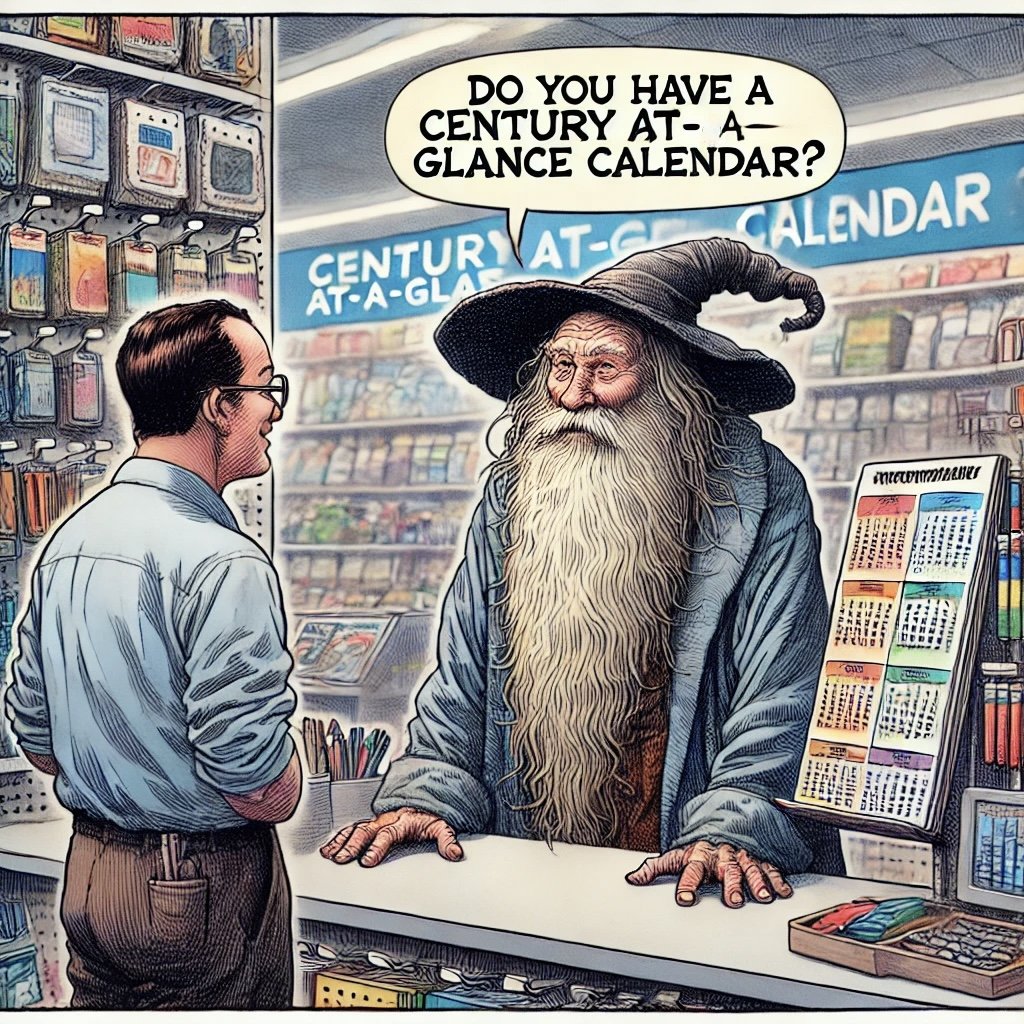

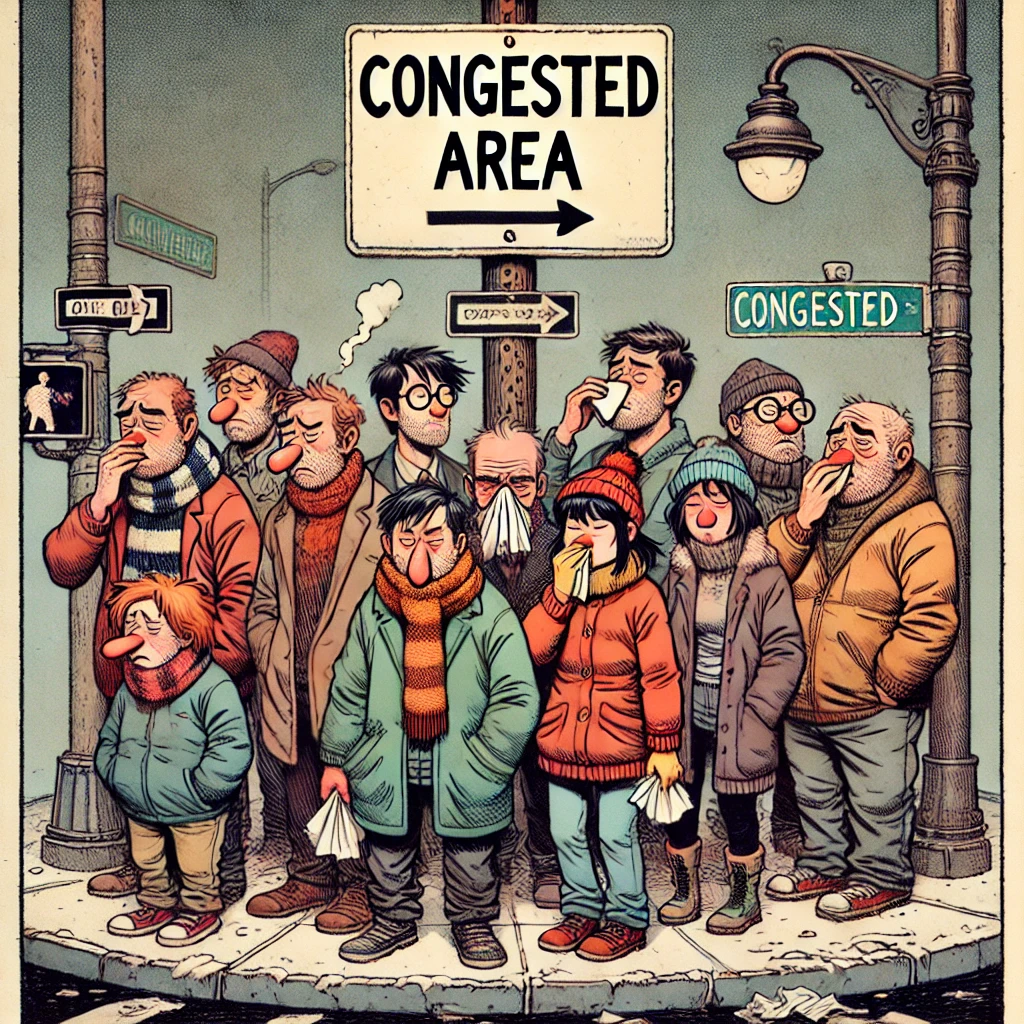
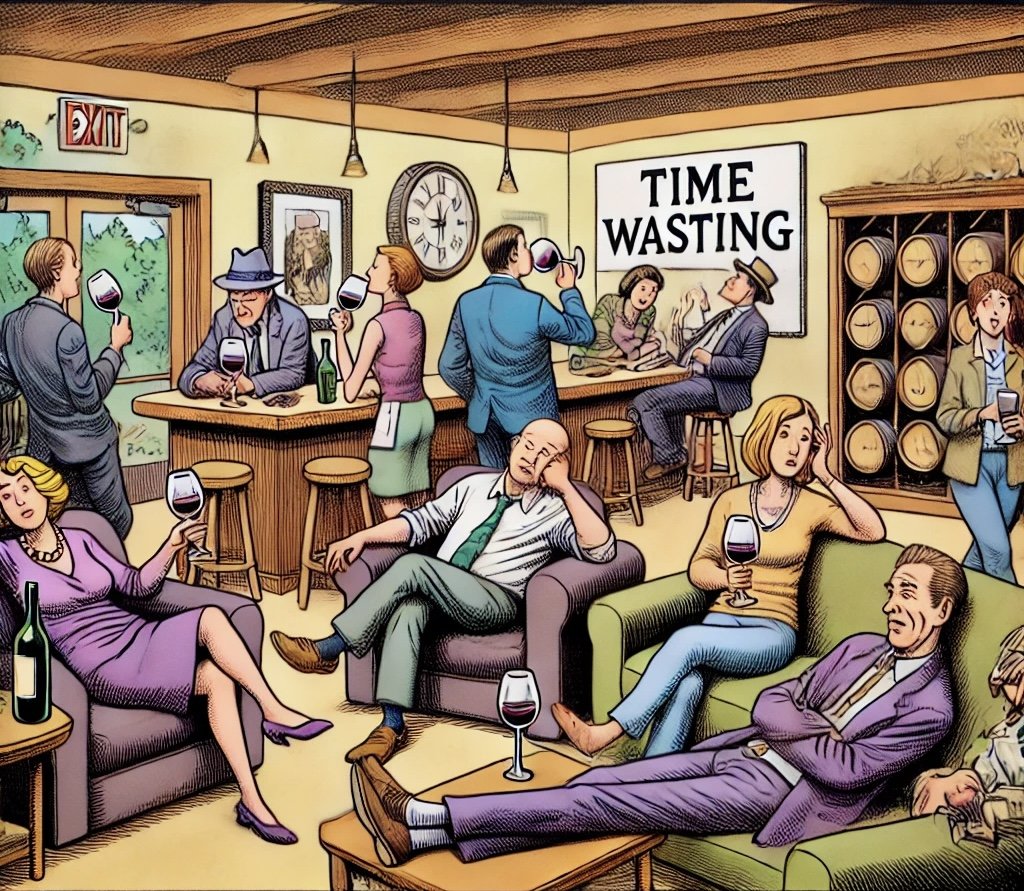



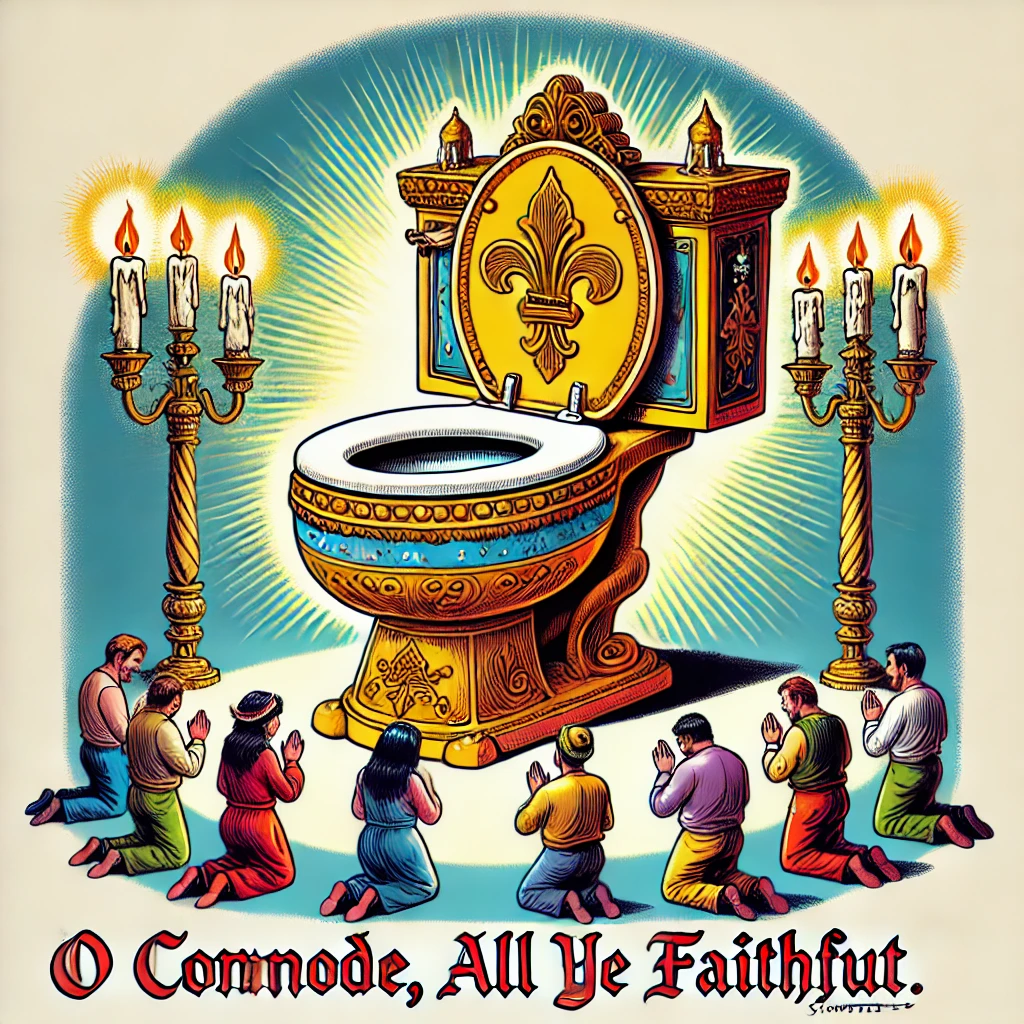
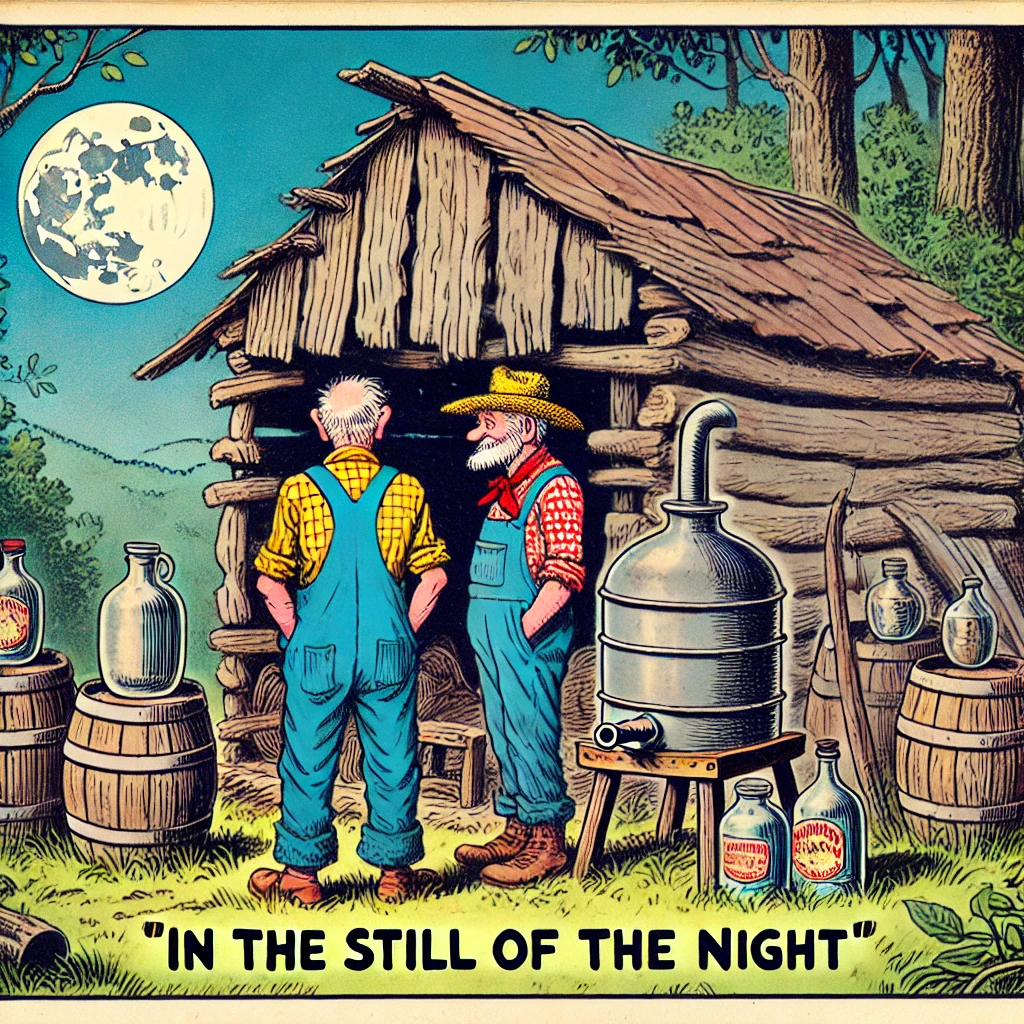







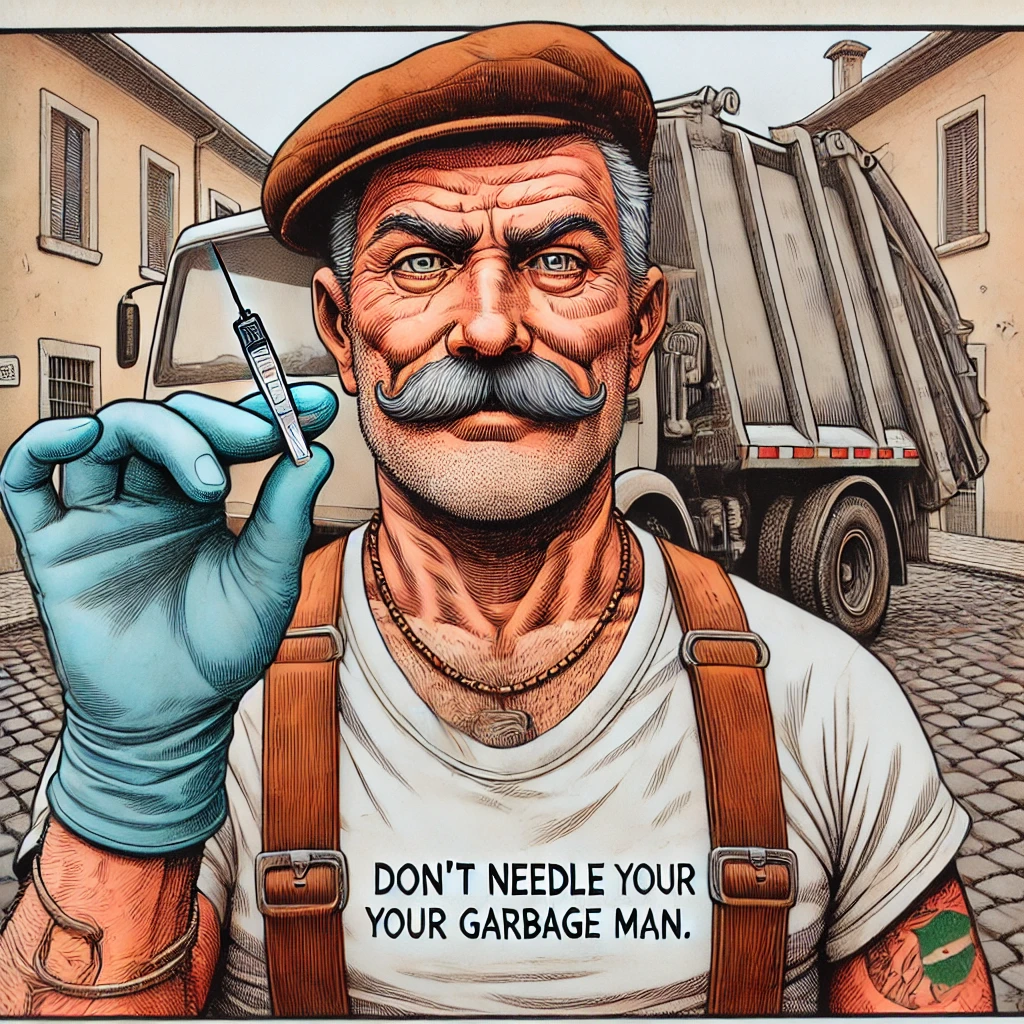


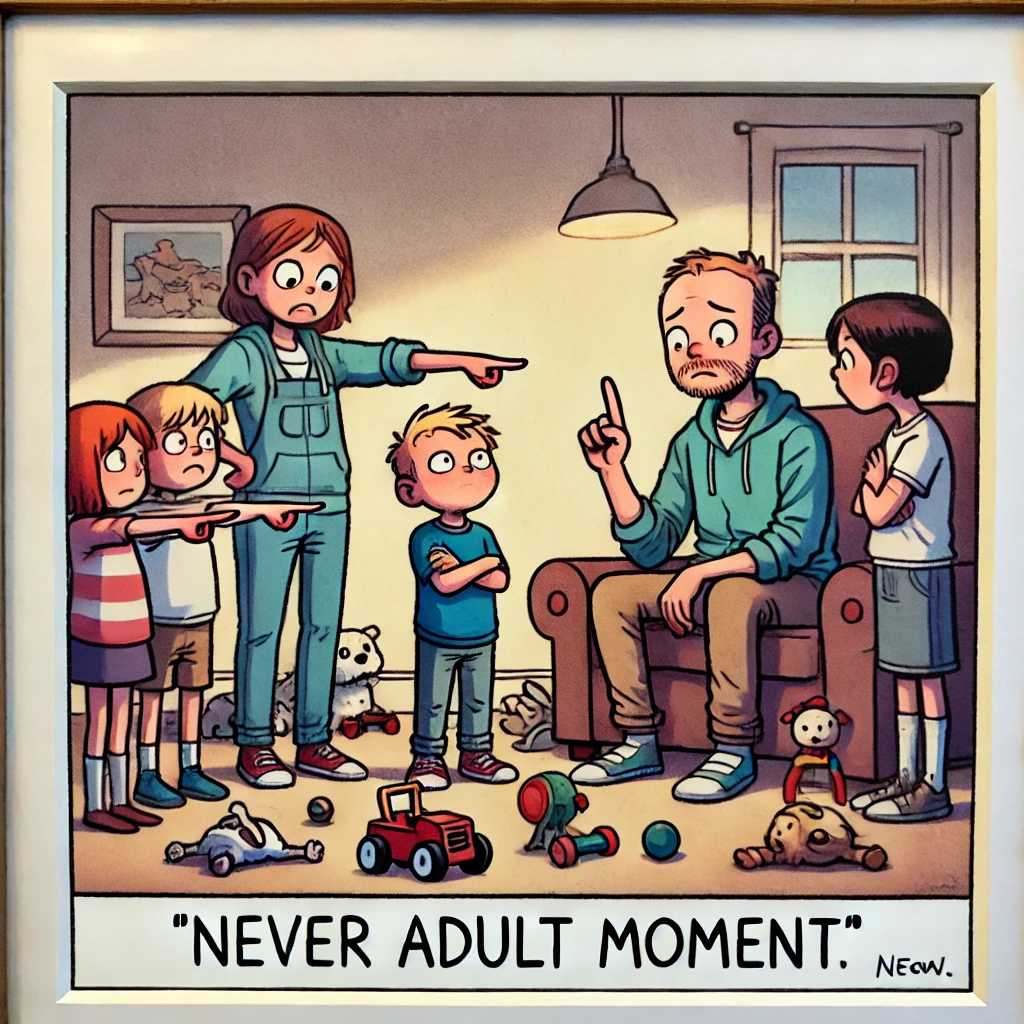




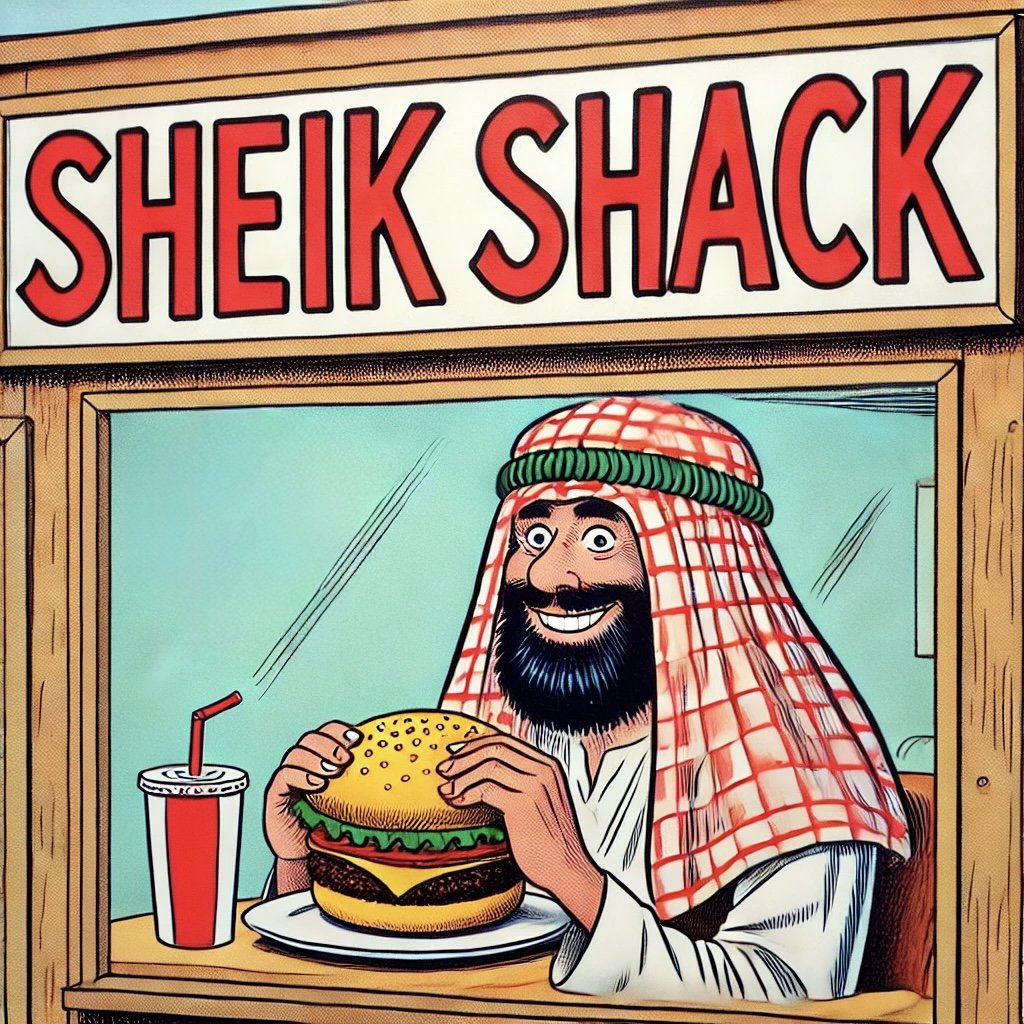

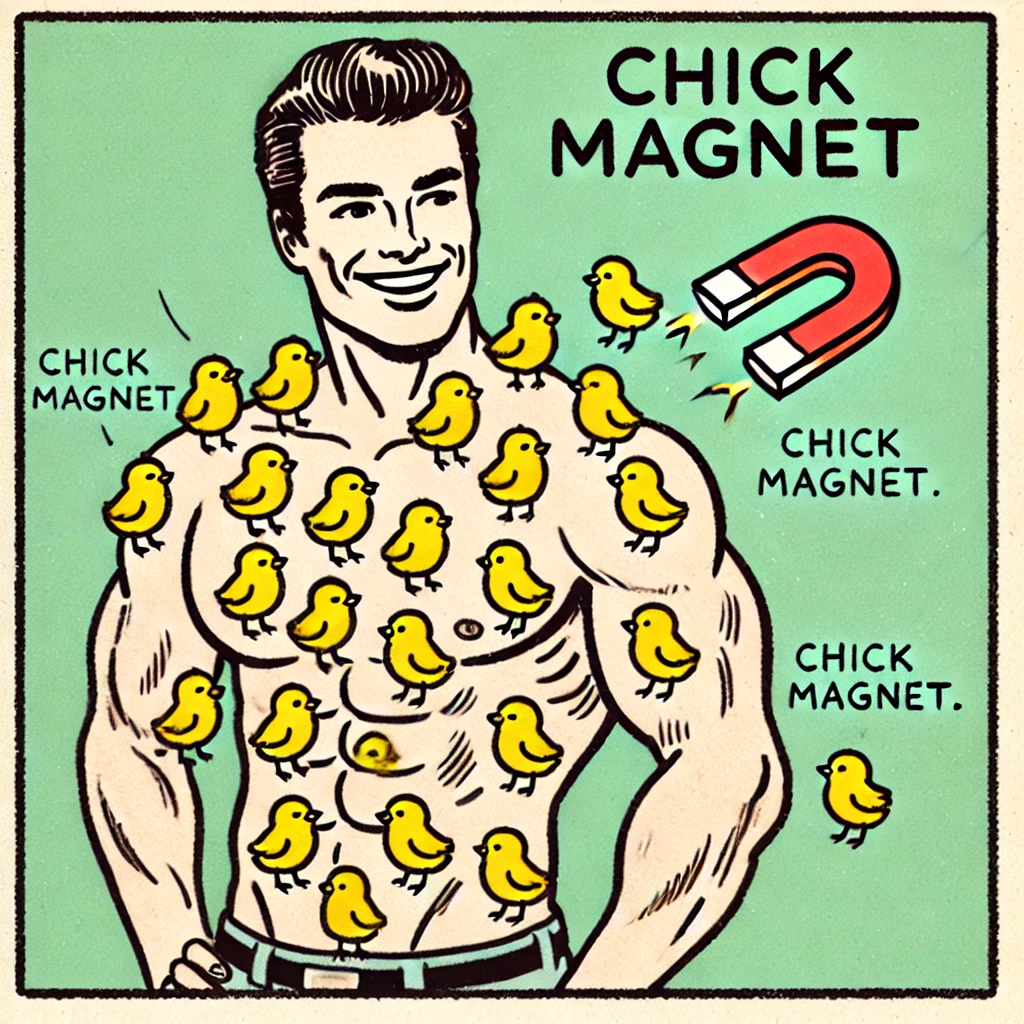


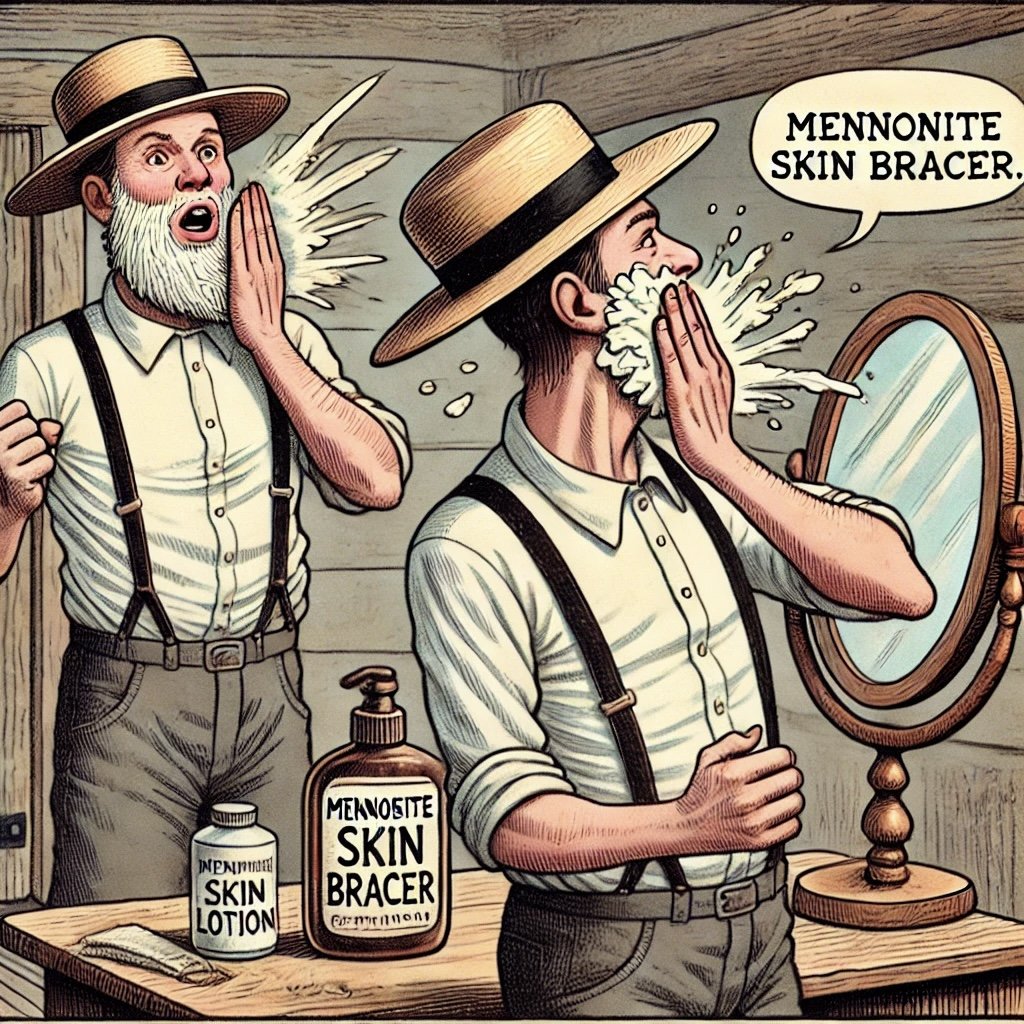




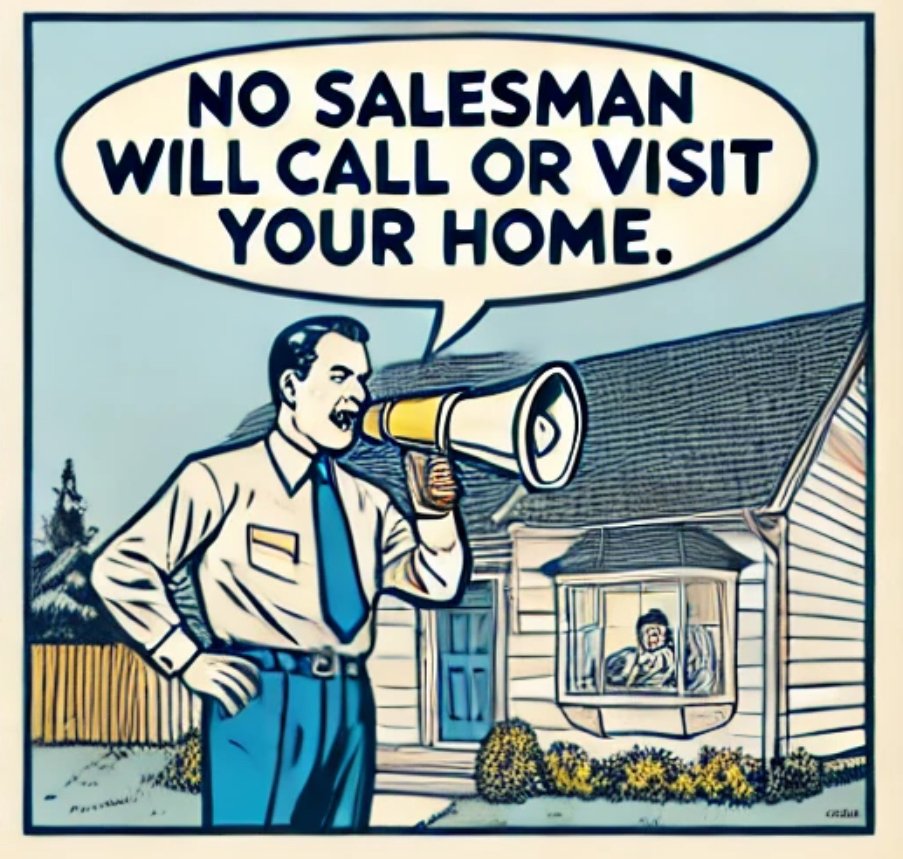



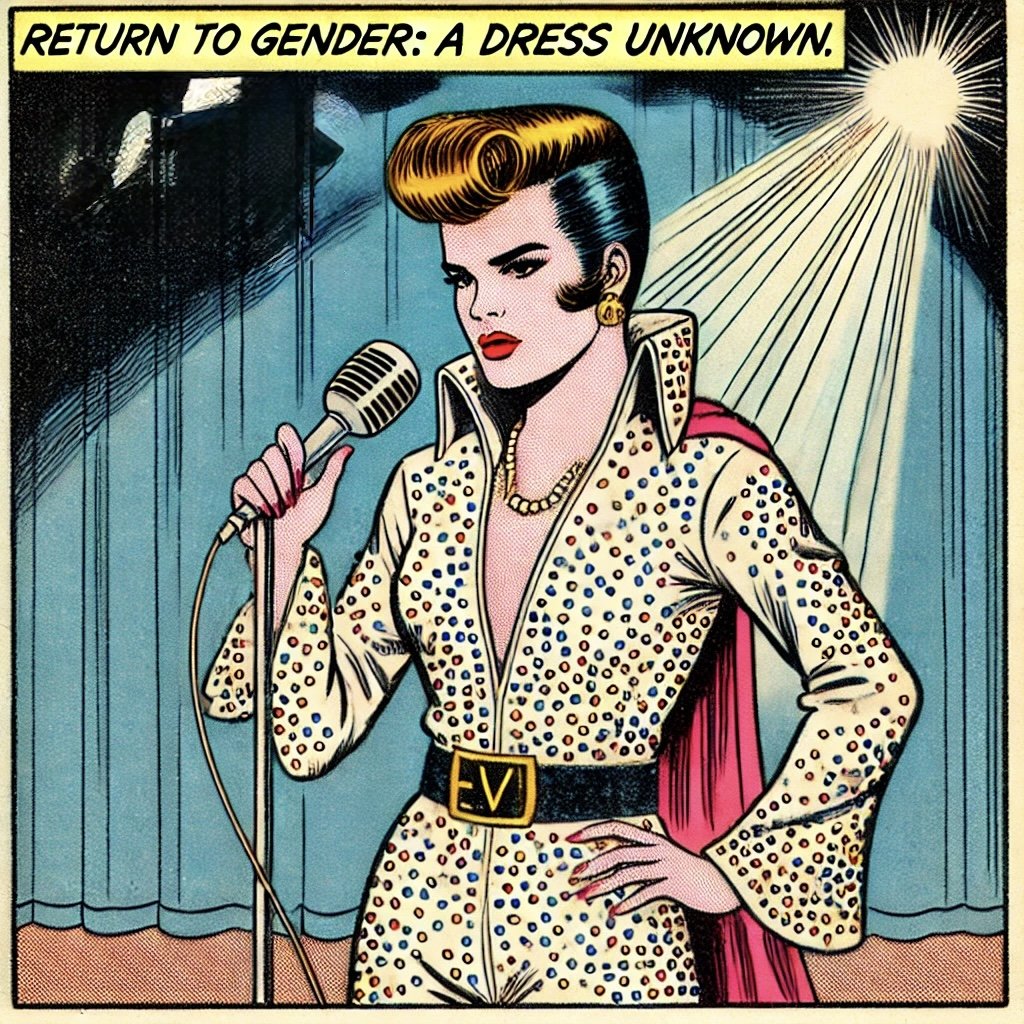
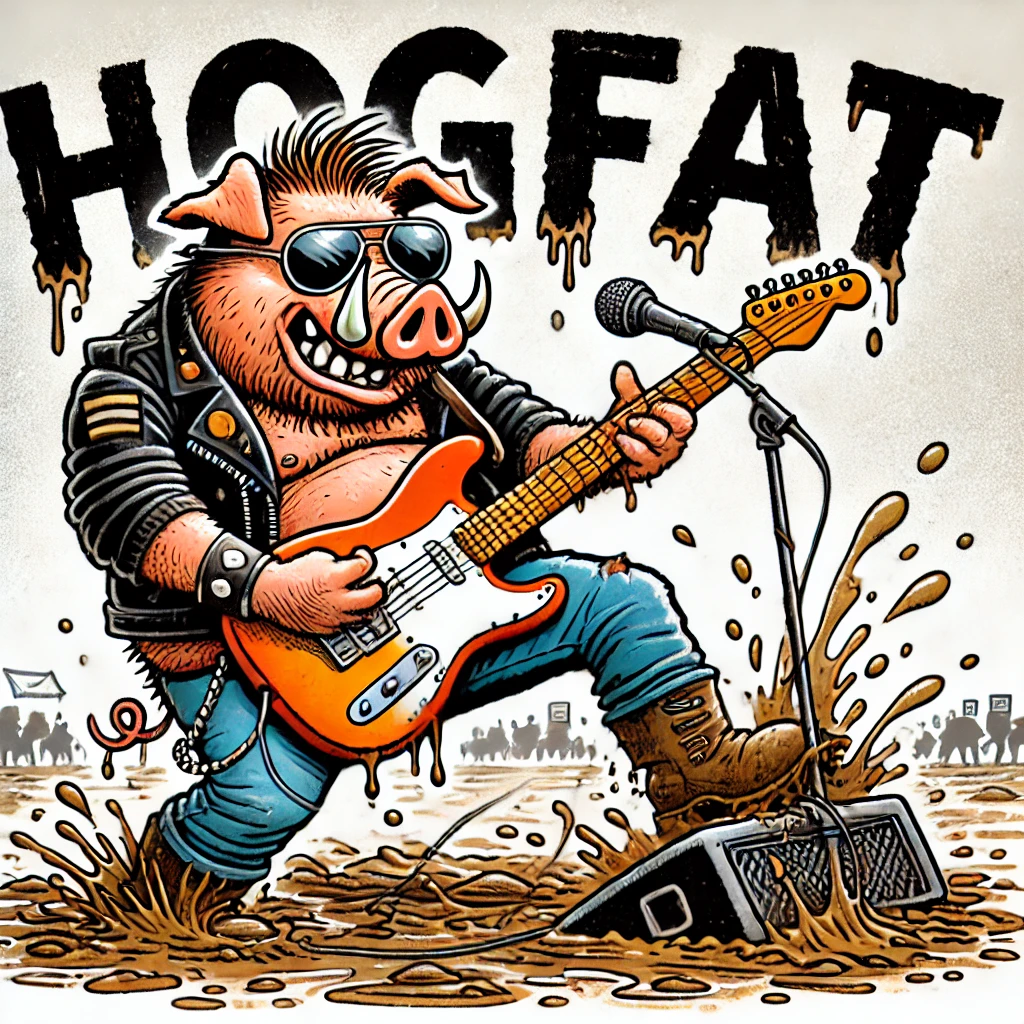
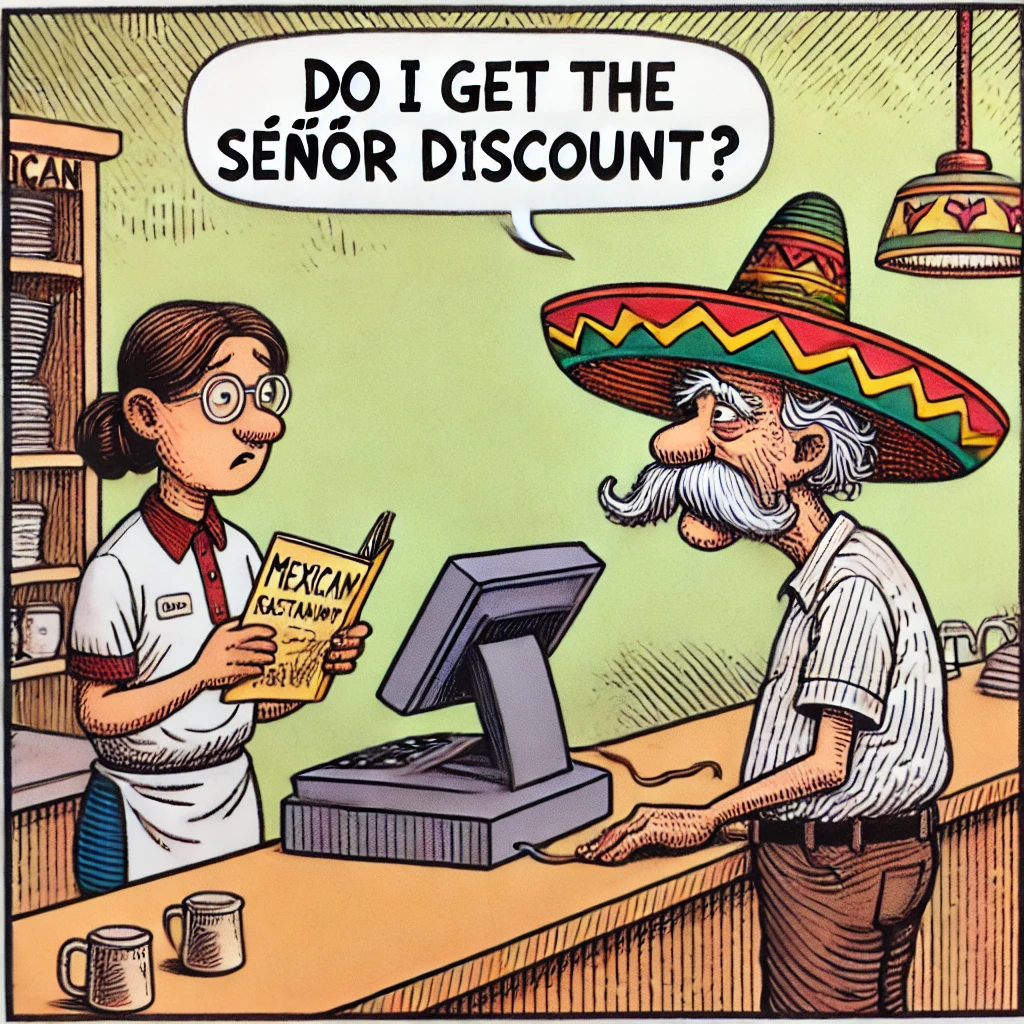
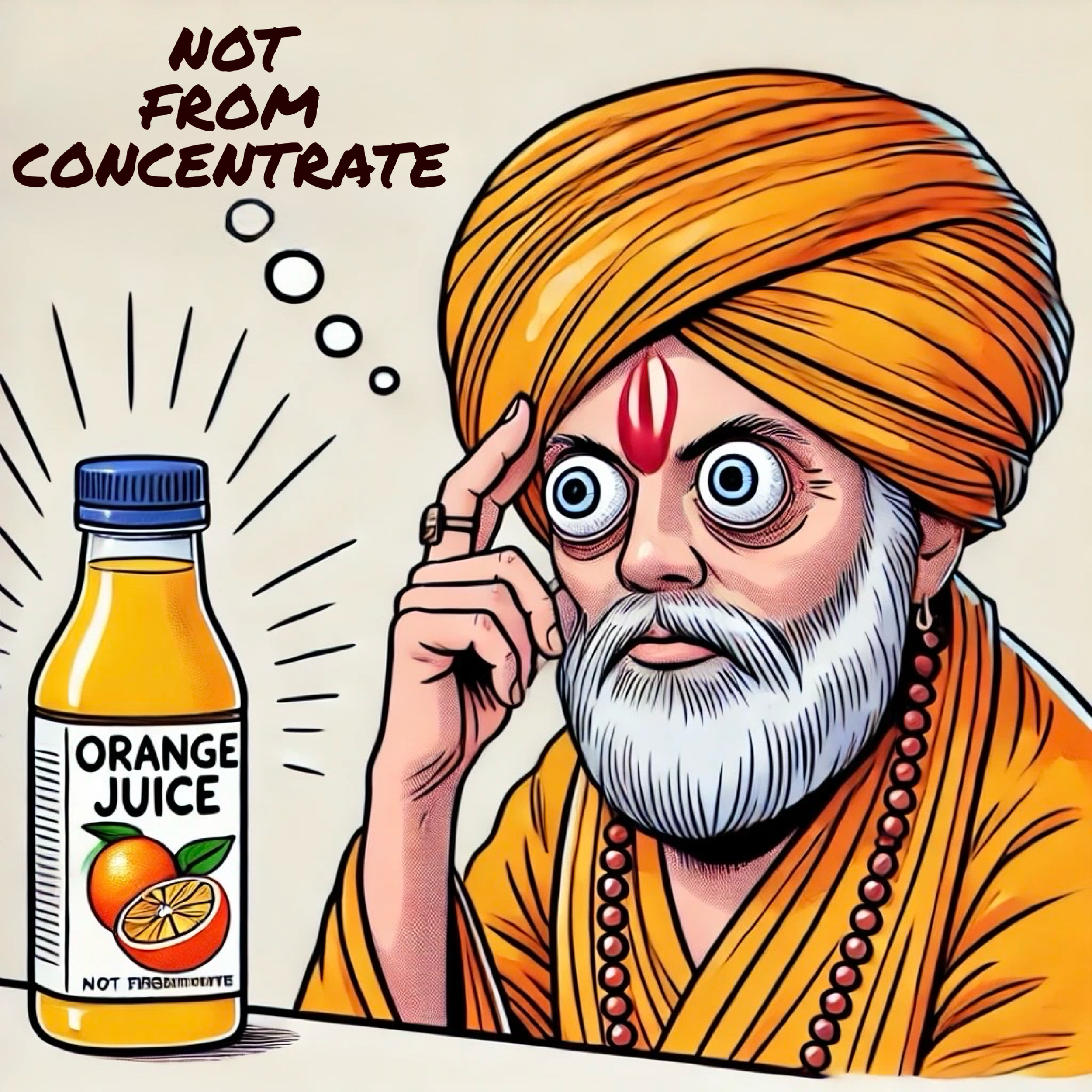
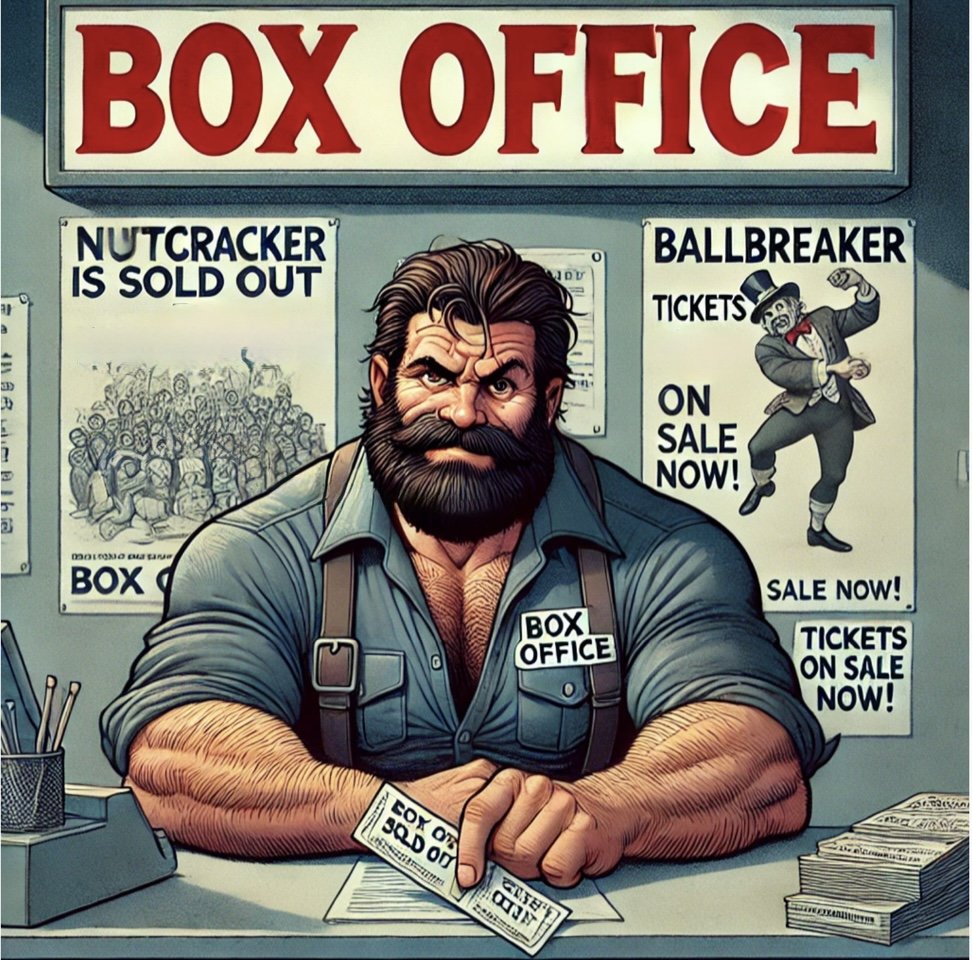

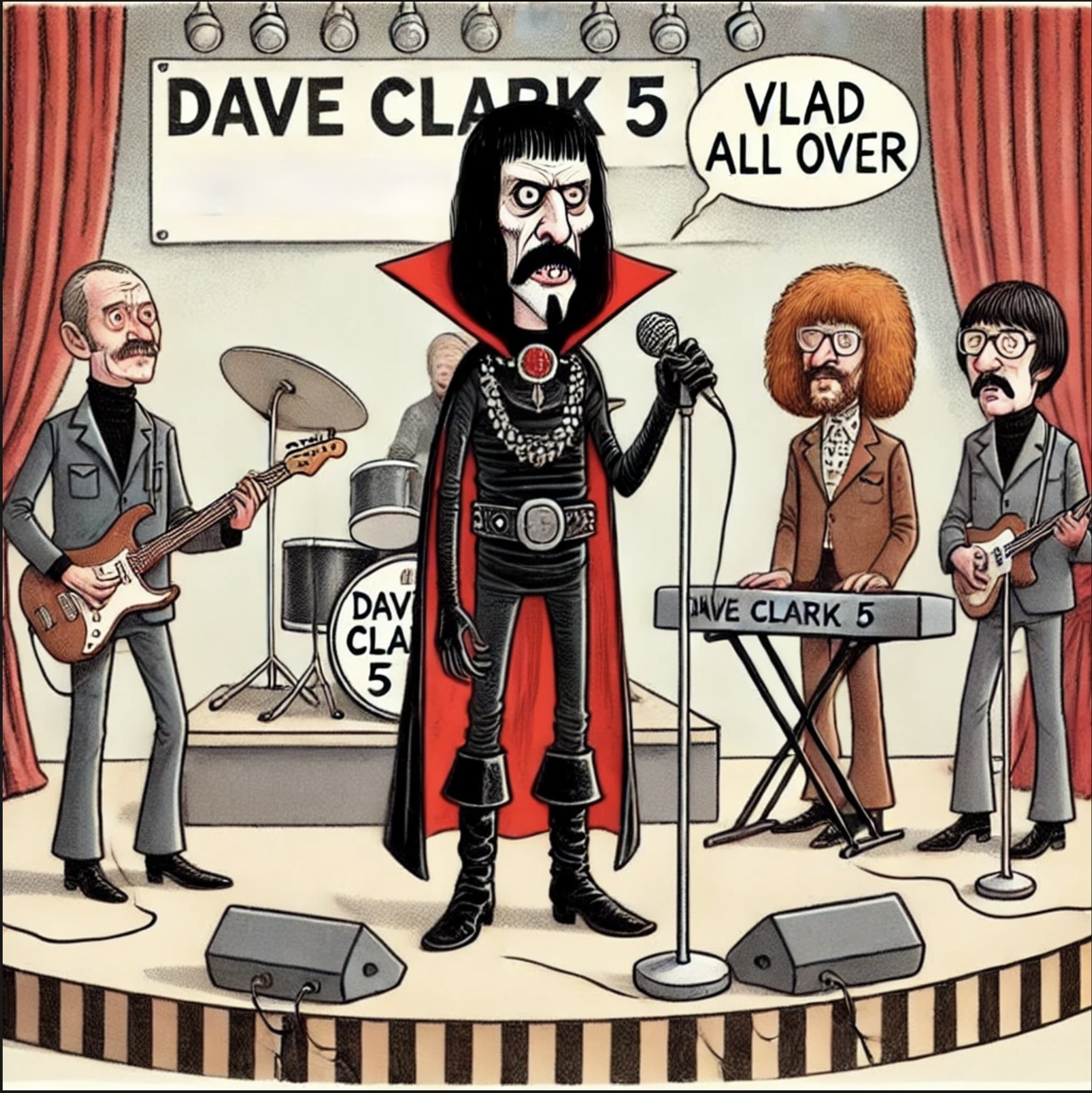


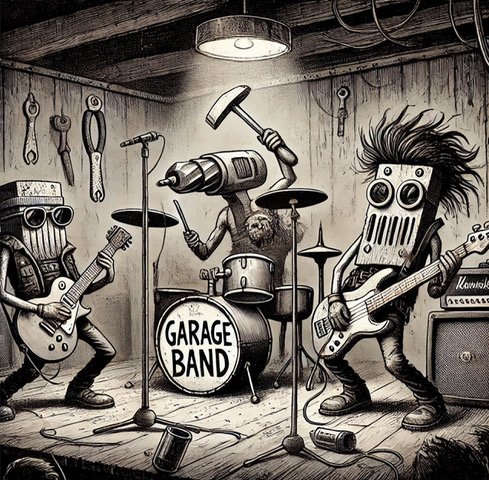




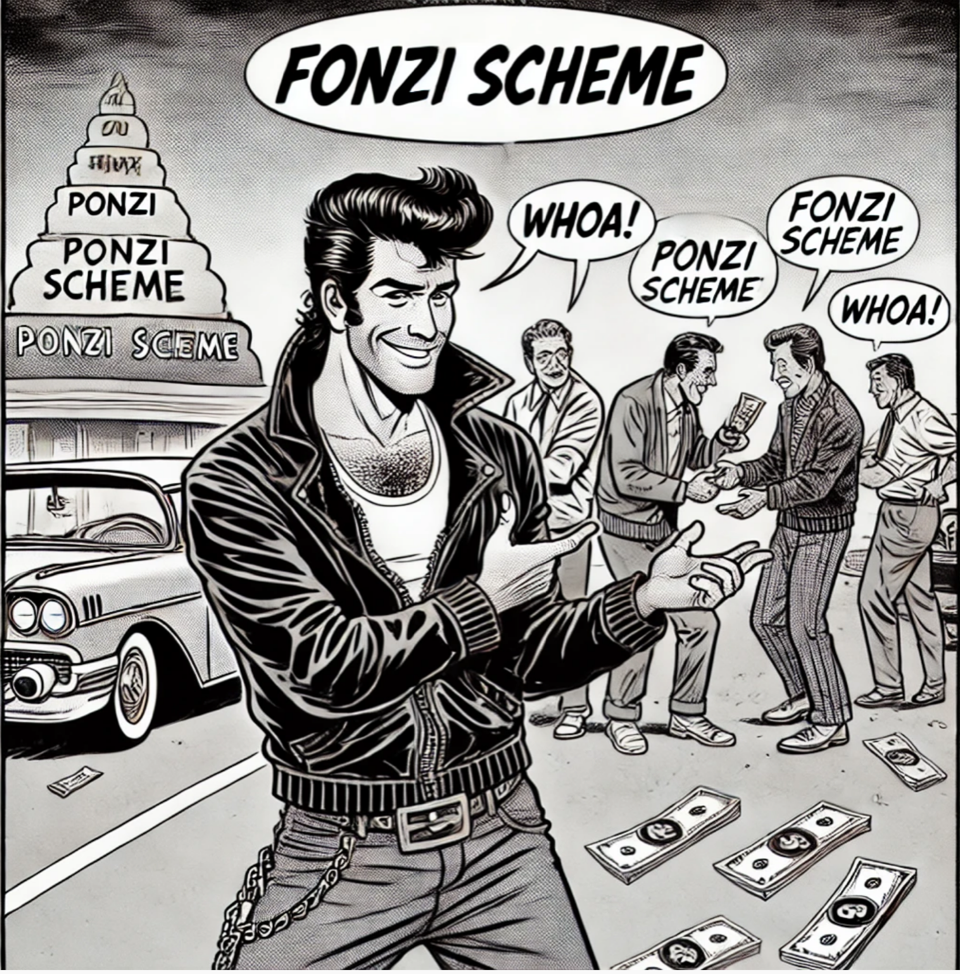

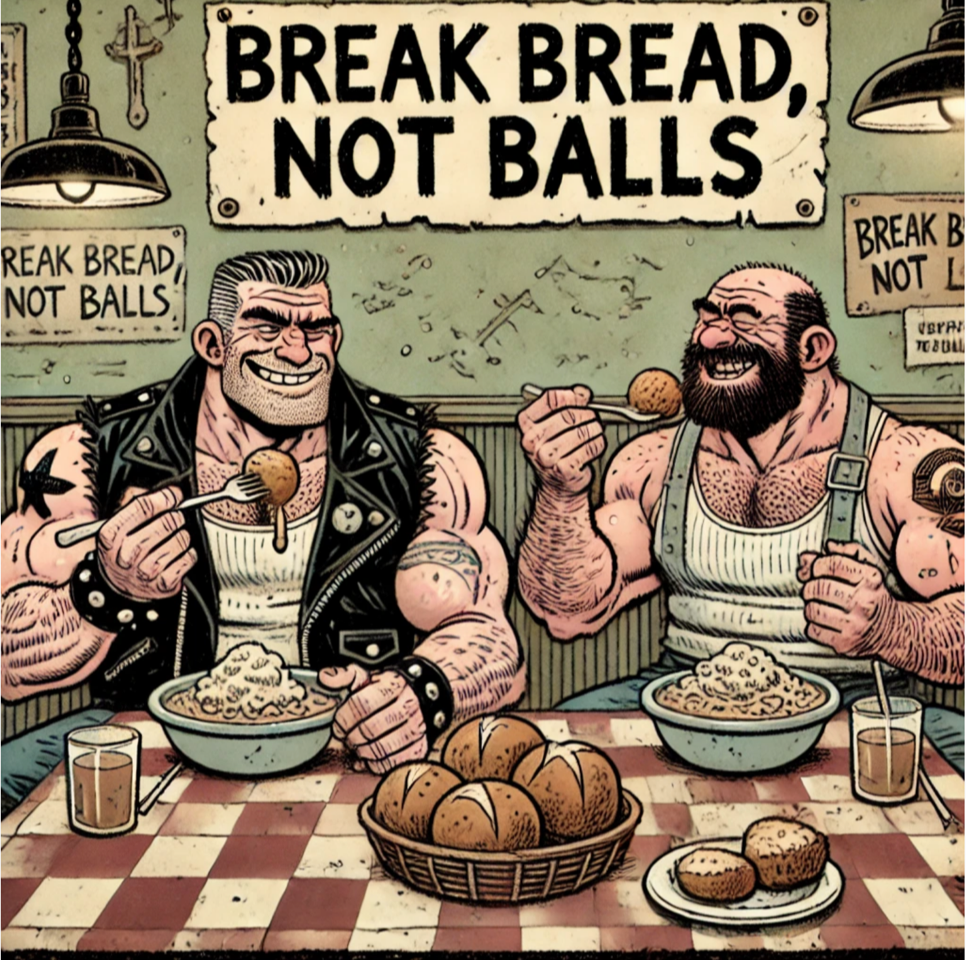


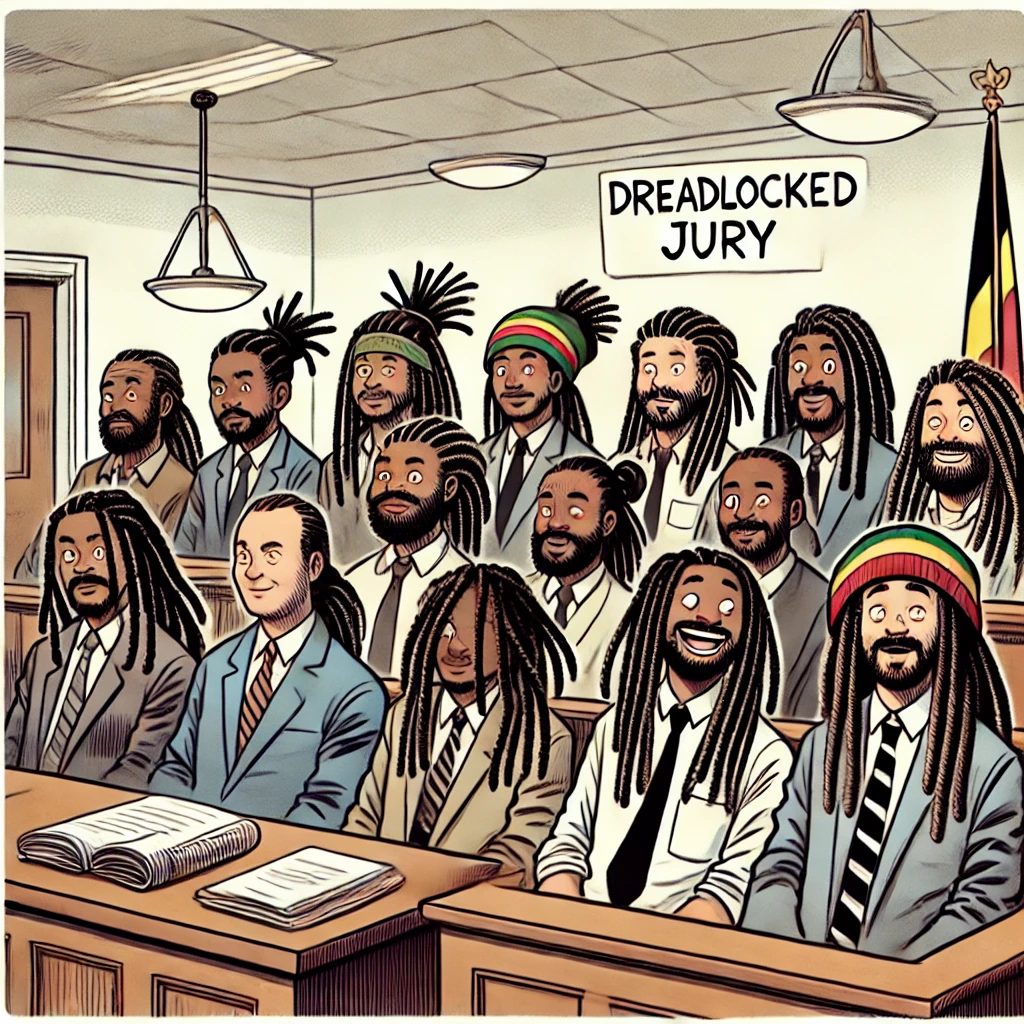
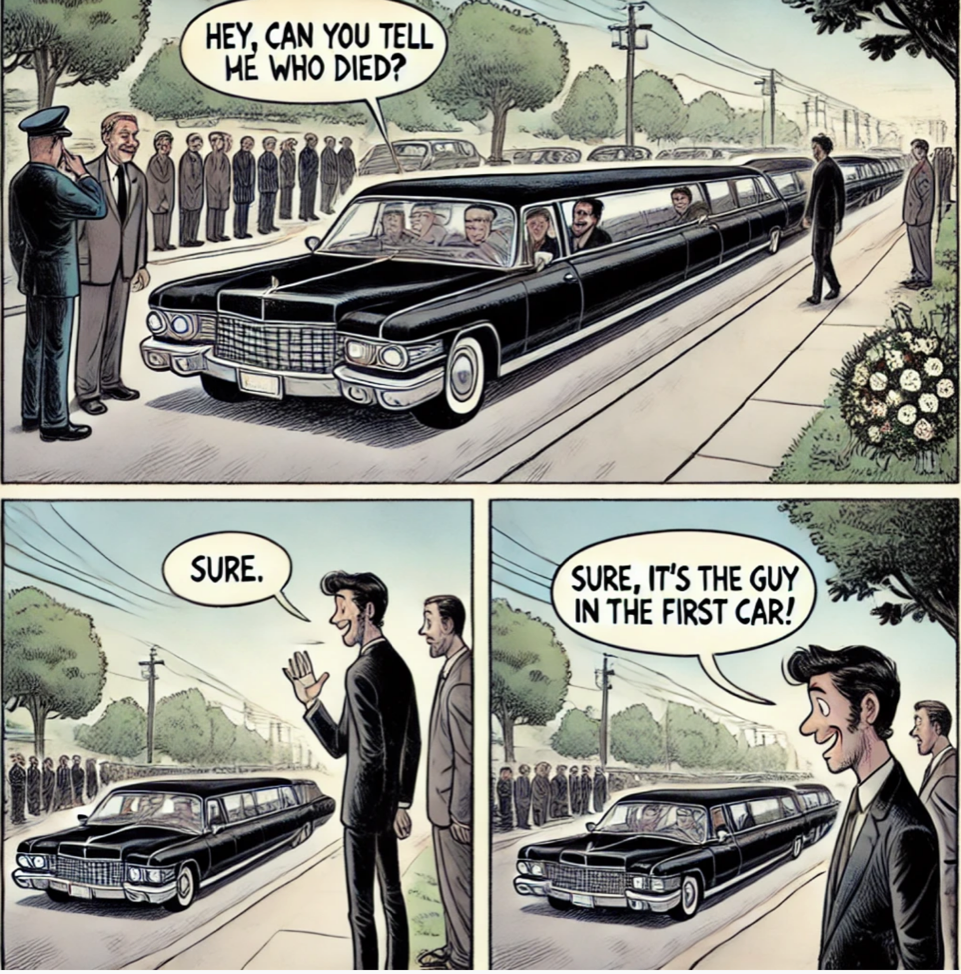




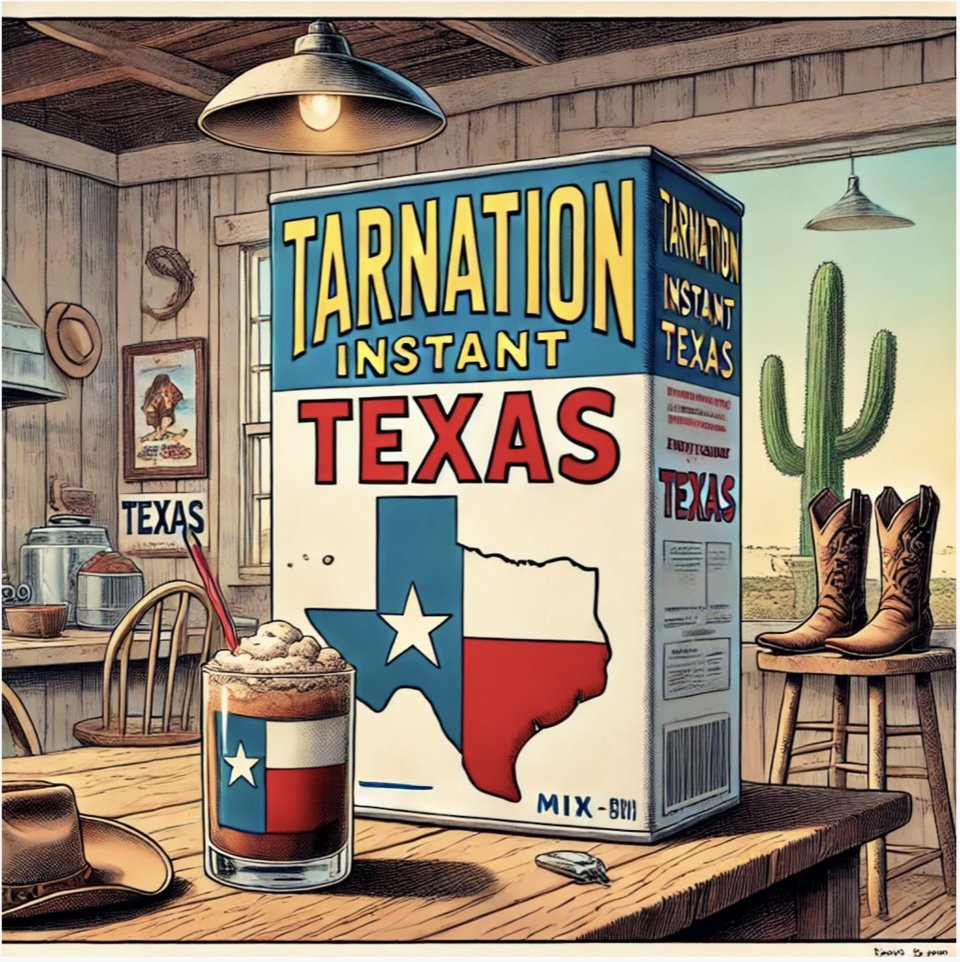
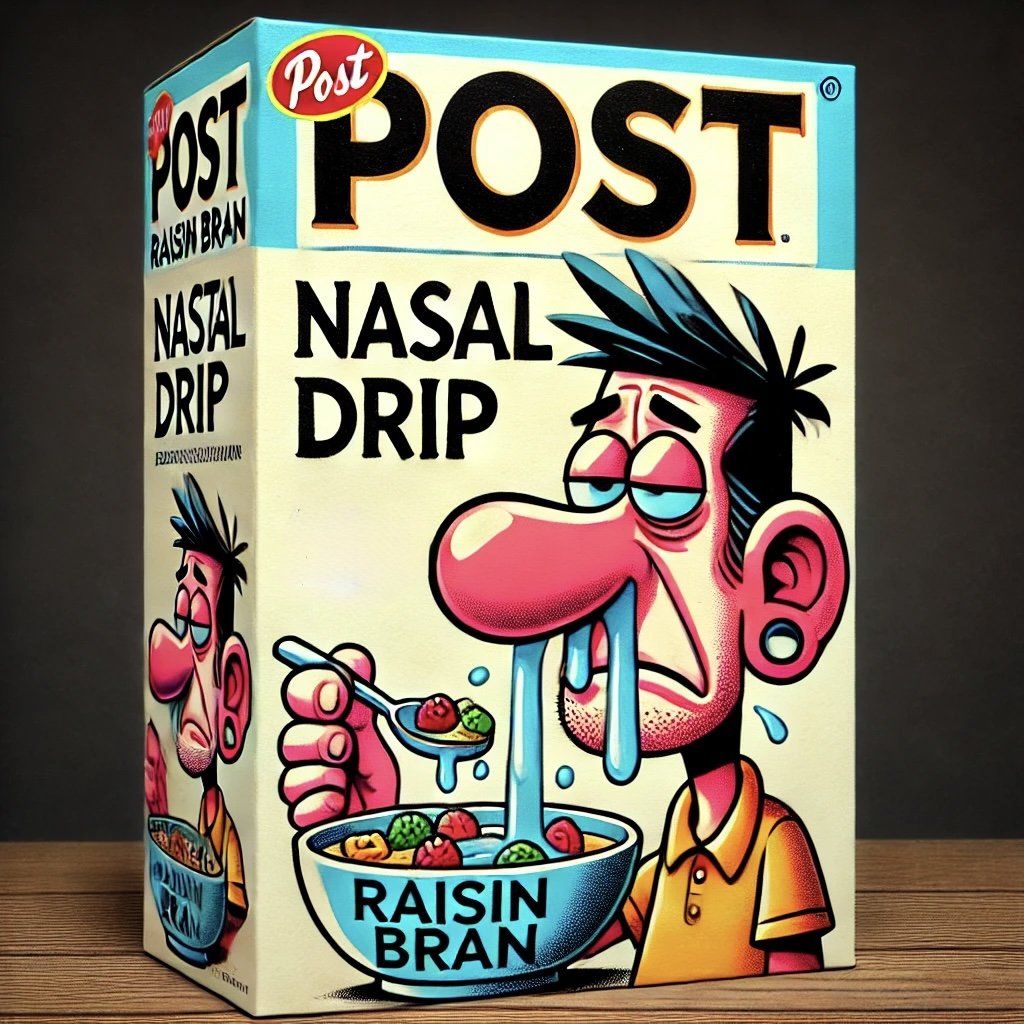
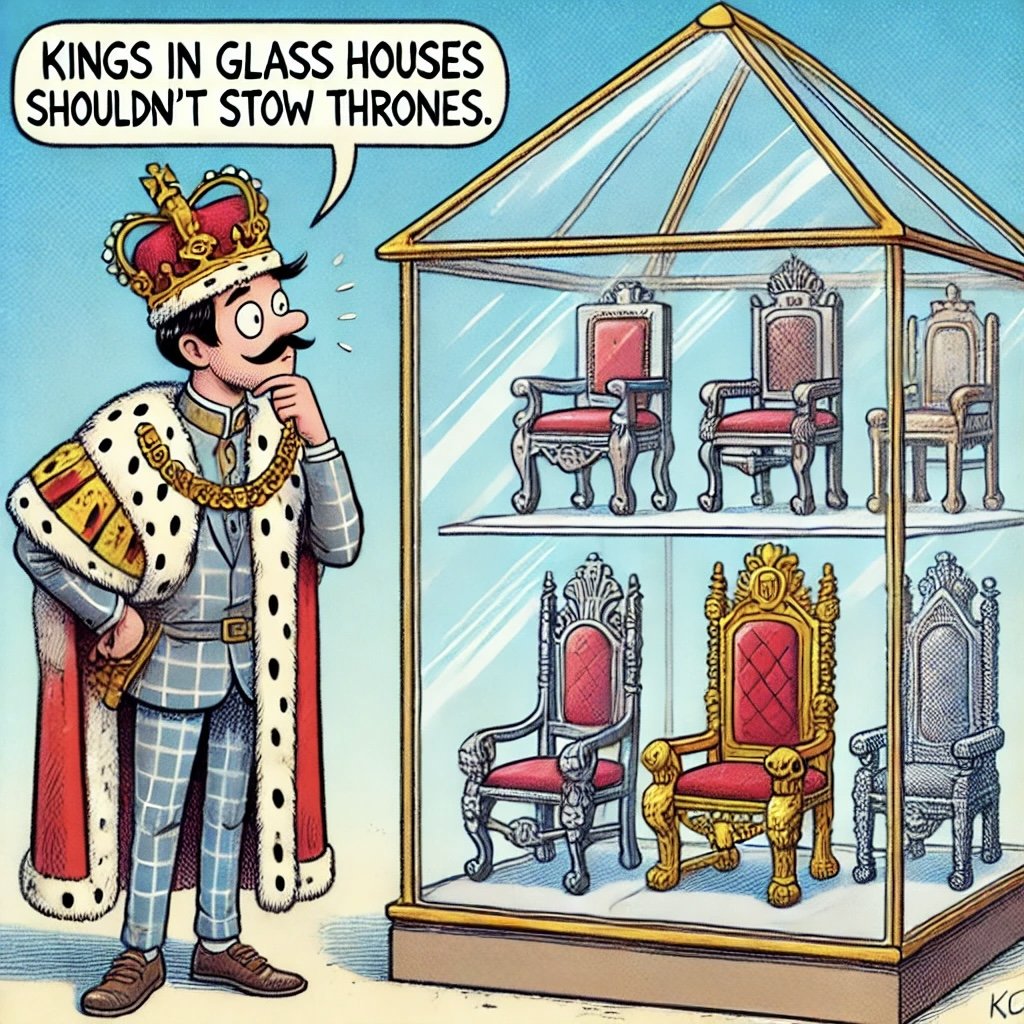
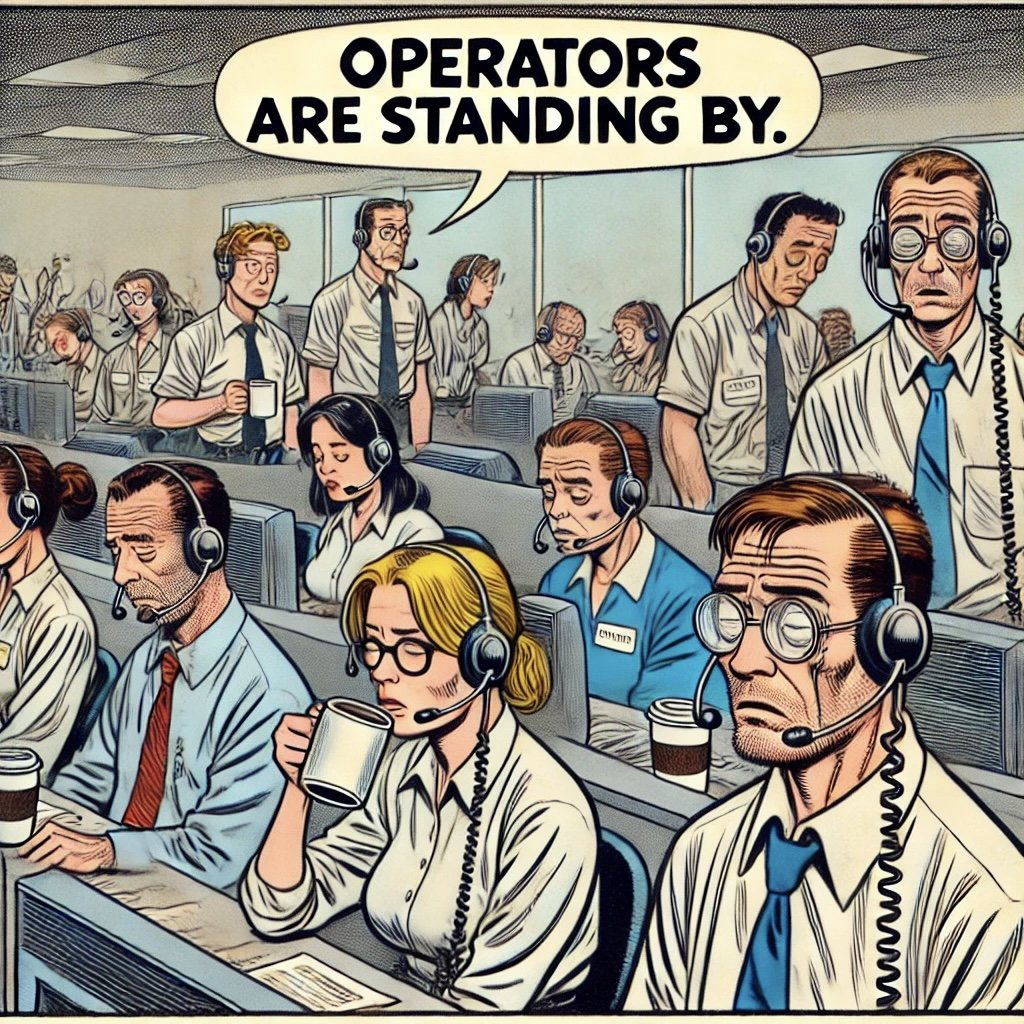
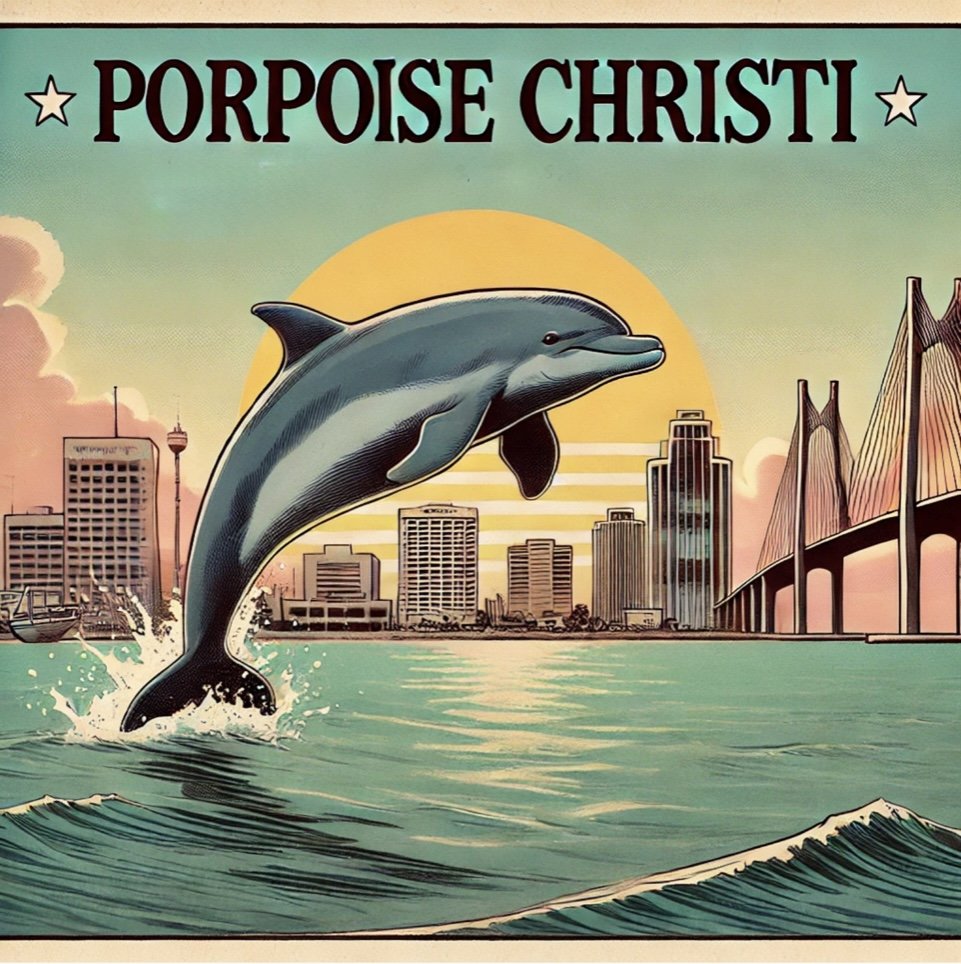










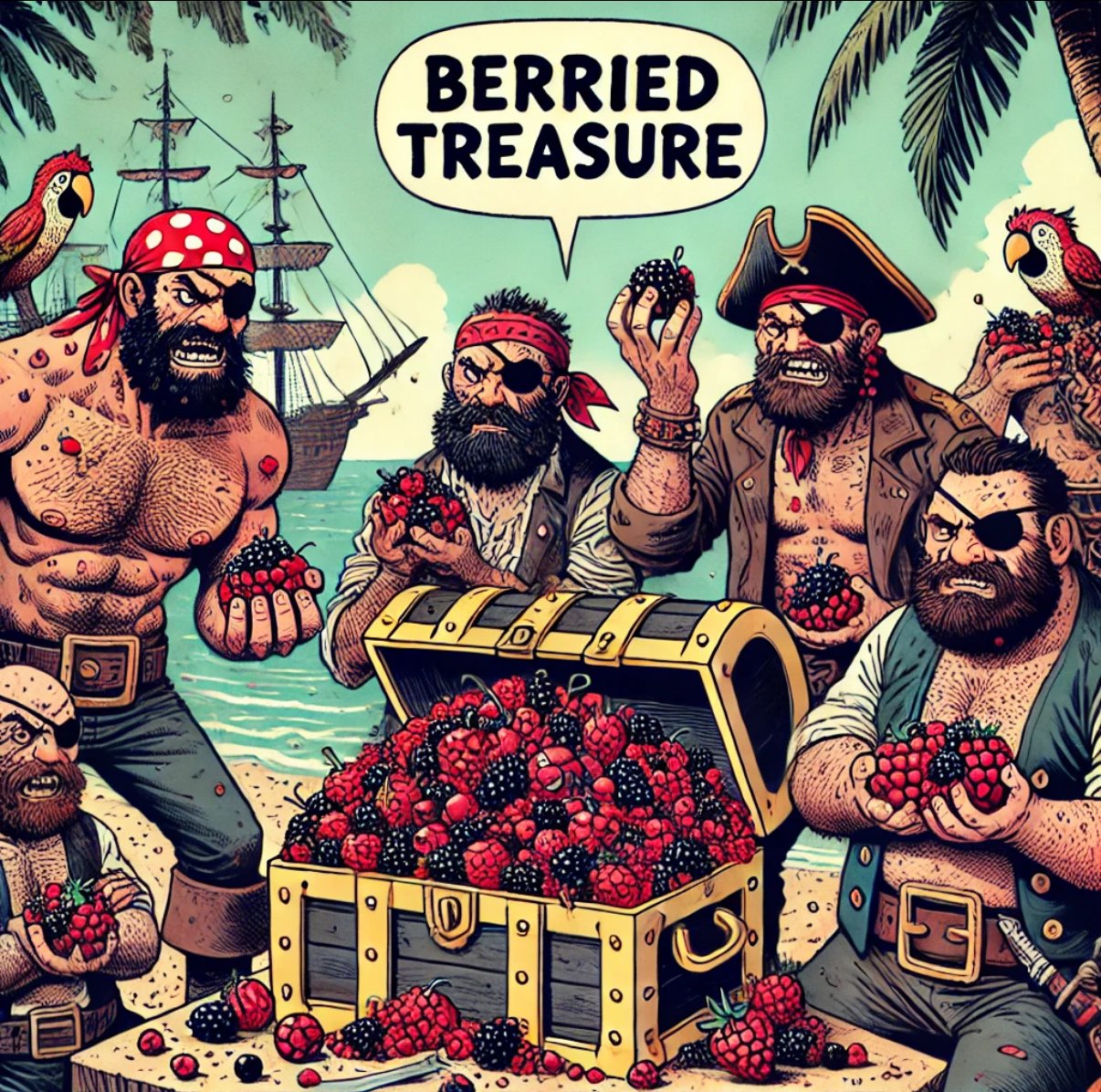
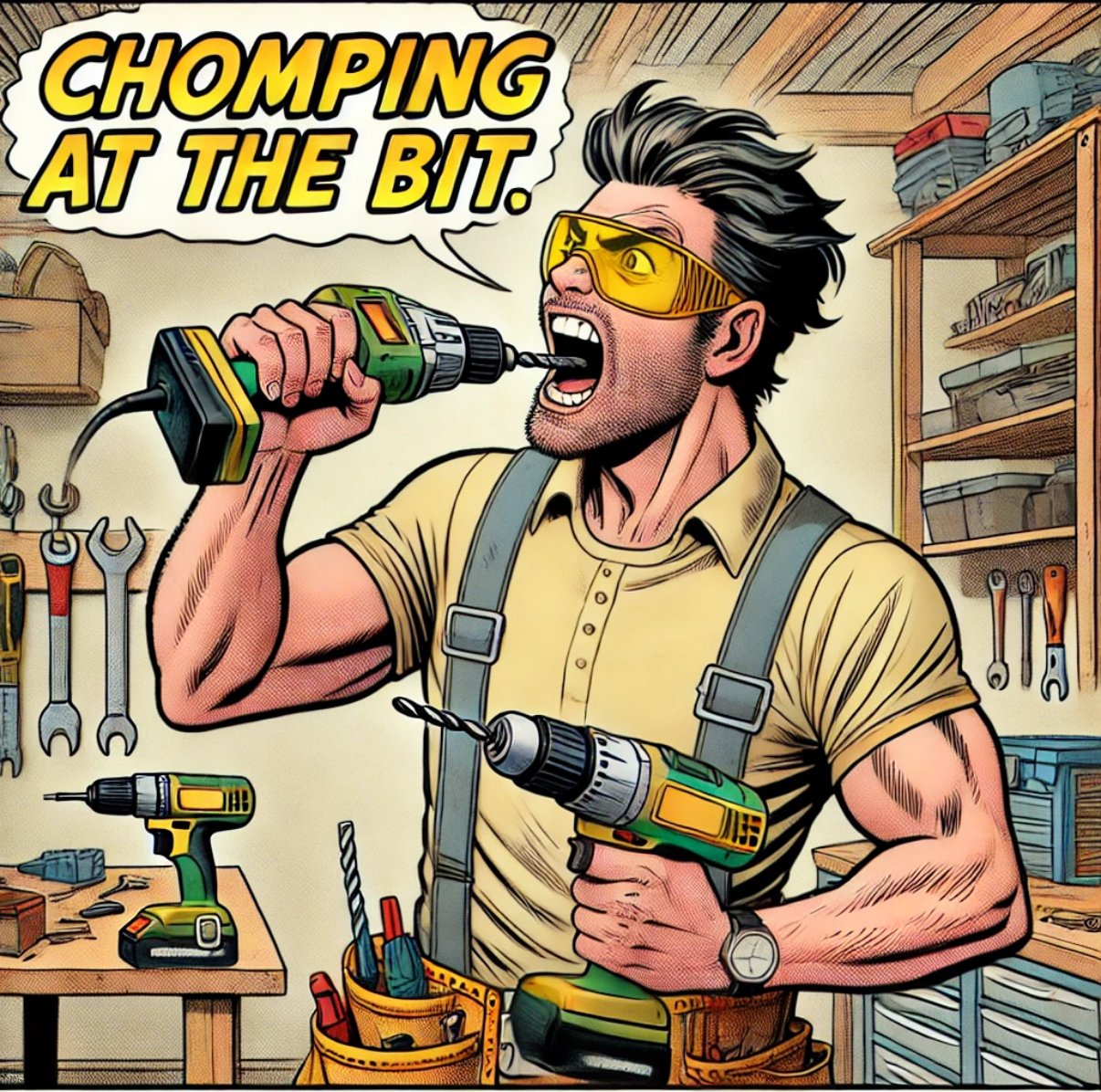
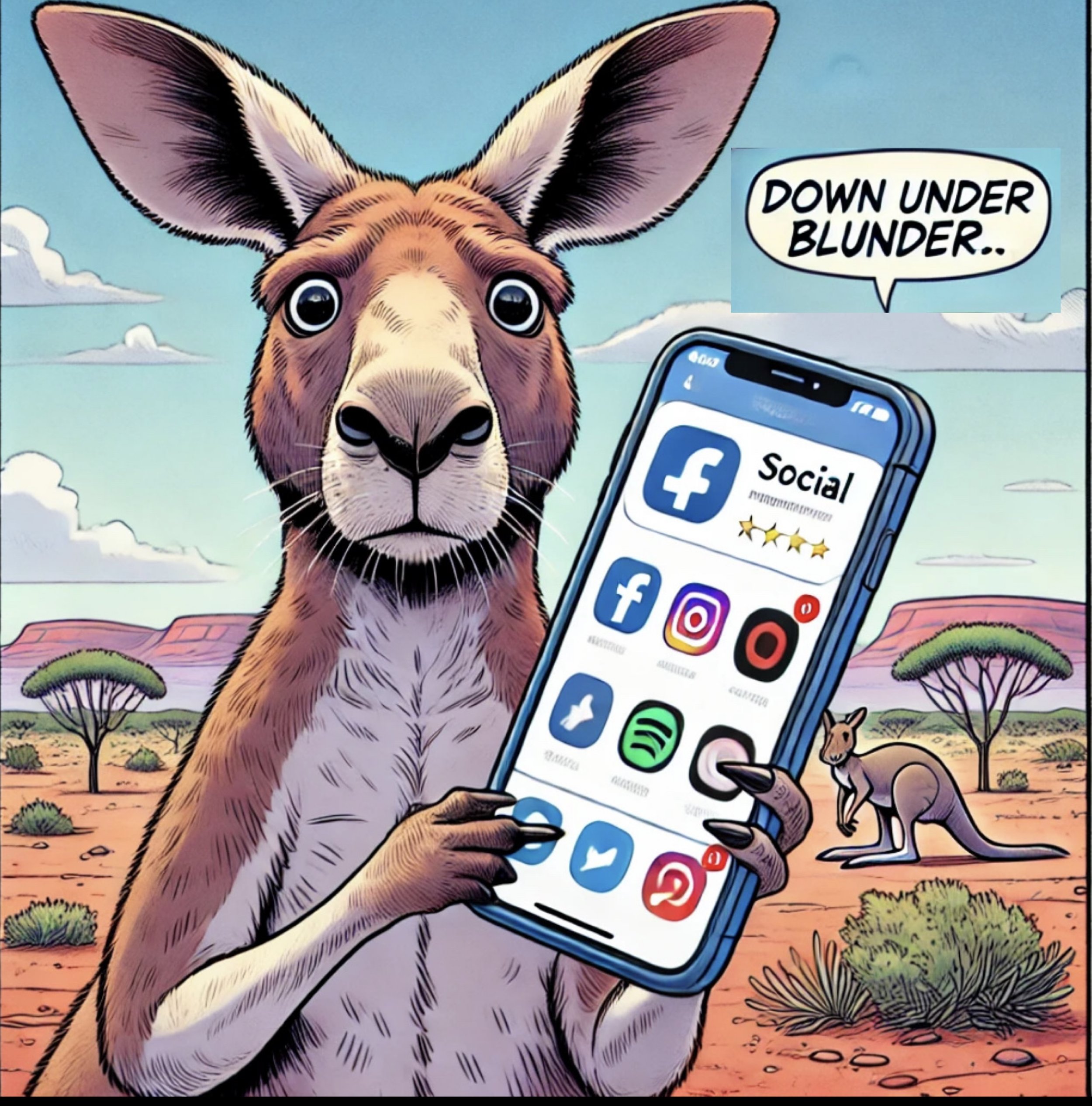














Rockabilly Roadhouse
with Big Dave
Saturdays 9am-11am on the KRUSH 95.9 FM, Sonoma County Wine Country
Welcome to the Rockabilly Roadhouse….your amped-up headquarters for the some of the greatest music ever recorded. For the best in high-octane roots music, from the legendary kingpins to today’s torch bearers. Early rockabilly, rock & roll legends and rarities, jump blues, doo-wop, surf and novelty records plus TV classics, movie trailers, vintage commercials and fun retro flashbacks to jog the memory banks! Tune into the Rockabilly Roadhouse as I take you through the high seas of big fun. From Carl Perkins to the Reverend Horton Heat…and beyond. From the sound of Marlon Brando cranking up his hog and Shorty Rogers signature arrangement of The Wild One to stir things up, you know you’re in store for big fun when I amp up the Rockabilly Roadhouse for another adventure in rock ‘n roll hijinks! Get down to the Main Gazane! Remember, they called it Rockabilly long before they called it Rock and Roll.
YOW! BIG DAVE
Rebroadcast Sat. 7pm-9pm & streaming live at KRSH.com
Big Dave Presents:
The Saturday Night Album Trax
Saturdays 9-10pm Pacific on the KRUSH 95.9 FM
BREAK OUT THE HEADPHONES!
Hosted by Big Dave, the Saturday Night Album Trax features some of the greatest albums ever recorded. Deep cuts, live albums, extended tracks, rarities and themes. Plus get the background and inside stories on these classic albums.
These are the good old days!
STREAM IT LIVE at KRSH.com
The Mouse That Rocked: A Tribute to Stanley Mouse
Various Artists
Release Date: April 12, 2024
Blue Rose Music
Downloads include choice of MP3, WAV, or FLAC
An album honoring psychedelic poster and album artist Stanley Mouse who drew the face on rock music.
Contemporary artists performing music from the bands featured in Stanley's iconic artwork since the 60s; from original Avalon Ballroom and Fillmore posters to album covers by the Grateful Dead, Journey and all the great groups including Jefferson Airplane, Grateful Dead, Cream, The Beatles, Big Brother and the Holding Company, Bo Diddley, Sir Douglas Quintet, Moby Grape, Howlin’ Wolf, etc.
12 new tracks by Chuck Leavell, Leftover Salmon, Charlie Musselwhite, Nicole Atkins, Shawn Sahm & The Tex Mex Experience, Junior Brown, Nicki Bluhm & The Gramblers, Poor Man’s Whiskey, The Mother Hips, Dan “Lebo” Lebowitz, Jason Crosby, and the Pimps of Joytime.
Featuring the music of Jefferson Airplane, Grateful Dead, Big Brother and the Holding Company, The Beatles, Howlin’ Wolf, Journey, Cream, New Riders of the Purple Sage, Bo Diddley, Sir Douglas Quintet, Moby Grape, and Stanley Mouse.
Liner notes by San Francisco music critic and author Joel Selvin.
Self-portrait by Stanley Mouse.
100% of proceeds will benefit the Blue Rose Foundation, dedicated to providing preschool scholarships to underprivileged children.
Produced by David Gross
Executive Producer: Joe Poletto
Mastered by Michael Romanowski at Coast Mastering
Design & Layout by Meredith Gross
THE MOUSE THAT ROCKED: A TRIBUTE TO STANLEY MOUSE
SHAWN SAHM & THE TEX MEX EXPERIENCE
“MENDOCINO” (Sir Douglas Quintet)
Shawn Sahm - guitars, vocals,
piano, percussion
Kevin Russell - vocals
Keith Langford - drums
Harvey Kagan - bass
Augie Meyers - Vox Continental organ
Flaco Jimenez - accordion solo
Produced & Engineered by Shawn Sahm,
Recorded at Poverty Studios
Groovers Paradise, TX
Mixed by Shawn Sahm & Stuart Sullivan
at Wire Recording, Austin, TX
NICKI BLUHM & THE GRAMBLERS
“SOMEBODY TO LOVE” (Jefferson Airplane)
Nicki Bluhm - lead vocals
Deren Ney - lead guitar
Mike Curry - drums
Steve Adams - bass
Dave Mulligan - guitar, vocals
Recorded, Mixed & Produced by
John Vanderslice at Tiny Telephone,
Oakland, CA
DAN “LEBO” LEBOWITZ
“THE INNER LIGHT” (The Beatles)
Dan "Lebo" Lebowitz - vocals, acoustic
guitar, Weissenborn, electric guitars,
pedal steel guitar, drones, percussion
Jason Crosby - fiddle, Wurlitzer, vocals
Paula Frazer - vocals
Produced by Lebo
Mixed by David Simon-Baker
Recorded at Leboland, San Francisco, CA
CHUCK LEAVELL
“THREE HUNDRED POUNDS OF JOY” (Howlin’ Wolf)
Gary Porter - drums
Johnny Fountain - bass
Elbert Durham - sax
Chuck Leavell - piano, organ & vocals
Produced & Arranged by Chuck Leavell
Engineered & Mixed by Paul Hornsby
Recorded & Mixed at
Muscadine Studios, Macon, GA
NICOLE ATKINS
“I NEED A MAN TO LOVE” (Big Brother and the Holding Company)
Nicole Atkins - vocals
Zach Setchfield - guitar
Jeremy Fetzer - guitar
Robbie Crowell - bass
Jerry Pentecost - drums
Recorded at Club Roar, Nashville, TN
ngineered & Mixed by
Patrick Damphier
POOR MAN’S WHISKEY
“LIGHTS” (Journey)
Jason Beard - mandolin
Josh Brough - banjo, vocals
Jeff Coleman - piano, Hammond
Mark Murphy - bass
David Noble - guitar, vocals
George Smeltz - drums
Ben Andrews - fiddle
Recorded at Tiny Telephone,
San Francisco, CA
Engineered by Jacob Winik
PIMPS OF JOYTIME
“CROSSROADS” (Cream)
Performed by Pimps of Joytime
Recorded at Janxta Jay's Studio,
Brooklyn, NY
Mixed & Produced by Brian Jay
LEFTOVER SALMON
“I DON’T KNOW YOU” (New Riders of the Purple Sage)
Vince Herman - vocals, acoustic &
electric guitar, mandolin
Drew Emmitt - vocals, mandolin,
acoustic & electric guitars
Andy Thorn - vocals, acoustic
& electric banjo, National guitar
Greg Garrison - vocals, acoustic
& electric bass, acoustic guitar
Jose Martinez - drums, percussion
& cardboard box
Produced by Steve Berlin
Executive Producer: John Joy,
Cloud City Studios, Portland, OR
Engineered by Justin Phelps
Mixed by Justin Phelps & Steve Berlin
Mastered by John Baldwin,
Nashville, TN
CHARLIE MUSSELWHITE
“EASY WIND” (Grateful Dead)
Charlie Musselwhite - guitar,
vocals, harmonica
Recorded & Mixed by Harry Gale at
Route 44 Studio, Sebastopol, CA
JUNIOR BROWN
“ROAD RUNNER” (Bo Diddley)
Junior Brown - guitar, vocals
Tanya Rae Brown - guitar, vocals
Adam Ahrens - drums, vocals
Matt Hubbard - piano, vocals
Recorded by Stuart Sullivan at
Wire Recording, Austin, TX
THE MOTHER HIPS
“8:05” (Moby Grape)
Tim Bluhm - guitar, vocals
Greg Loiacono - guitar, vocals
Engineered & Mixed by Tim Bluhm
at Forrest Power Studio, Fairfax, CA
JASON CROSBY
“STANLEY’S SONG” (Composed by Stanley Mouse)
Jason Crosby - piano
Recorded by Jono Manson
at The Kitchen Sink,
Sante Fe, NM
Liner notes by San Francisco music critic and author Joel Selvin
Of all the great visual artists who have been associated with the music in one way or another over the years, none have been more rock and roll than Stanley Mouse. Not only does his art go straight to the heart of the maverick music, but he has produced some of the most lasting visual images in rock history. But, more than that, it is Mouse himself whose life has been straight out of the music.
Often with his partner Alton Kelley, sometimes on his own, starting in June 1966, Mouse created twenty-six of the next thirty-six posters for weekly dances thrown by Chet Helms’ Family Dog at the Avalon Ballroom. Along with the other pioneering psychedelic poster artists of San Francisco that year – Wes Wilson, Victor Moscoso, Rick Griffin – these artists brought back their images from the realms of LSD. They made posters that looked like the music sounded.
Mouse was the most spectacularly pixilated by the scene. Dressed in vintage military uniforms covered with braid and medals, long-haired, bearded Mouse stomped his way through the tribal dance/concerts, dancing, carrying on, in the front of the hall or backstage. But Mouse’s journey had always been a rock and roll story.
He grew up in Detroit where he was expelled from high school because he decided to paint some unsolicited images on the wall of a freshly white-painted restaurant and hangout across the street from his school. His downfall came because he signed his work. From the start, Mouse understood art should be subversive. Instead of going back to high school, he enrolled in the Detroit School for the Society of Arts and Crafts, but soon tired of the life drawing and abstract painting classes and concentrated on his own Monster art.
He pin-striped and painted flames on hot rods and air-brushed cartoon characters -- crazed monsters with gear shifts in their hands atop fantasy vehicles -- on sweat shirts he sold every weekend at county fairs, drag races and car shows. He developed a healthy mail order business. In 1963, he started Mouse Studios with his parents to handle sales of his designs (Mouse’s father was a sign painter and animator who had worked on “Snow White and the Seven Dwarfs”).
Immersed in the Detroit car culture, Mouse was working in the same underground movement as Southern California artist Ed “Big Daddy” Roth, a kind of authentic folk art that would be celebrated by journalist Tom Wolfe in his essay “Kandy-Kolored Tangerine-Flake Streamline, Baby.” At the height of his automotive period, Monarch Models used some of Mouse’s most popular work for their model car kits.
San Francisco called Mouse and, after returning to Detroit to solve his issues with the draft, he settled in the city just as the emerging scene was exploding. He had met Al Kelley at the notorious Pine Street commune, where Kelley sat atop a giant pile of trash in an otherwise empty room, speed-rapping while an AM radio played in the background. Mouse was immediately taken. They walked through the financial district together in full Edwardian finery, their locks flowing in the breeze, passing through crowds of people with short hair and gray suits. “There could be as many as a thousand people like us in San Francisco,” Kelley told Mouse.
With new groups like Jefferson Airplane, Grateful Dead, Big Brother and the Holding Company or Quicksilver Messenger Service springing up and weekly dances at the Avalon, the Fillmore Auditorium or other clubs and halls around town, the scene was on fire. This was before underground newspapers or free-form rock radio, so the only way to announce and advertise these events was through posters that would be displayed in shop windows and café bulletin boards. Mouse quickly realized he could find a place for himself.
Mouse Studios, located in an old firehouse on Henry Street in the Castro district, was one of the central headquarters of the hippie world. They kept supplies of liquid LSD in the refrigerator. When Janis Joplin arrived in San Francisco to join Big Brother and the Holding Company, she was directed to report to Henry Street for her first rehearsal with the band. Police were called when neighbors heard a woman screaming.
Essentially, Kelley concentrated on design and layout, while Mouse did the drawing, although specific jurisdictions and responsibilities might not have been all that clearly defined. Right-handed Mouse and left-handed Kelley worked on the same easel together. They haunted the art files of the San Francisco Public Library, where they found artwork by Art Deco illustrator Alphonse Mucha or Native American portraits by photographer Edward Curtis they would incorporate in their posters. That was also where they found the skull and roses illustration for a vintage edition of “The Rubaiyat of Omar Khayyam” that would become one of their most enduring images after they associated the drawing with the Grateful Dead for an Avalon poster.
Mouse, Kelley and the other San Francisco poster artists led a graphic revolution that upended the world of visual arts. They were the most important poster artists since Toulouse Lautrec chronicled café society in nineteenth-century Paris. Throughout it all, Mouse’s steady hand and literate eye can be seen shaping many of the enduring posters of the era.
He bailed on San Francisco when Eric Clapton of Cream, his favorite group at the time, invited him to London to pin-stripe and flame his Rolls Royce. He spent some time in New Mexico working at producing fine art paintings, but soon returned to the clarion call of the music. He provided the Grateful Dead with album covers like “Workingman’s Dead,” “Europe ‘72” or “Terrapin Station.” He drew the Pegasus logo for the Steve Miller Band that adorned the seventeen-million-selling greatest hits album. He devised the scarabs that decorated all the Journey albums and stage designs.
All along, with his mix of irreverent humor, outlandish images, fearless freehand, bold lettering and inflammatory script, Mouse has drawn on the very same resources that also feed the heart of rock music. His art drinks at the same trough as the music. His art is music on paper. High above them, Stanley Mouse and the musicians are tapping the same inspiration and telling the same stories, but the musicians only play rock and roll. Mouse draws it.
-- Joel Selvin
GREG ERRICO
ROCK & ROLL HALL OF FAME DRUMMER
Greg Errico
The Pulse Behind the Revolution
If you’ve ever felt your spine snap to attention on the downbeat of “Sing a Simple Song” or been swept up in the chaotic funk of “Thank You (Falettinme Be Mice Elf Agin),” you’ve felt the work of Greg Errico. As the original drummer for Sly and the Family Stone, Errico helped define the sound of late ’60s America—genre-defiant, deeply grooving, and impossible to ignore.
A founding member at just 18, Errico was on the kit at Woodstock and on almost every Family Stone hit that matters. His drumming—precise yet explosive, swinging yet syncopated—became a foundational rhythm for future generations. Hip hop producers have sampled him endlessly. Jazz heads name-check him with reverence. And rock historians place him right where he belongs: in the DNA of modern music.
After leaving the band in 1971, Errico didn’t fade—he evolved. From touring with Weather Report and David Bowie to recording with Santana, the Jerry Garcia Band, and Betty Davis (yep, he produced and played on her debut), Errico’s range became as legendary as his pocket.
Still active, still curious, Greg appeared in the Oscar-winning Summer of Soul and is now featured in the new Sly Stone documentary Sly Lives, streaming everywhere. He also recently co-produced the Grammy-winning Basie Swings the Blues and continues to perform and record from his new base in Las Vegas.
Greg Errico isn’t just a drummer. He’s a living groove library, an unsung architect of modern rhythm—and still, unmistakably, the heartbeat of the Family.
Howard Wales
Keyboard Legend
"Howard was so incredible, I was just hanging on for dear life. For some reason Howard enjoyed playing with me, but I was just keeping up. Howard was so outside. It was a wonderful experience, playing with Howard did more for my ears than anybody I ever played with because he was so extended and so different." ~Jerry Garcia
RECORDINGS
"THE MONK IN THE MANSION"
"RENDEVOUS WITH THE SUN"
PERFORMANCE & RECORDING CREDITS
RONNIE HAWKINS (TOURS) TORONTO, CANADA. 1963
LITTLE ANTHONY AND THE IMPERIALS (TOUR). 1964
FOUR TOPS (TOUR). 1964-1965
COASTERS (TOUR). 1965
THE CASINOS ("THEN YOU CAN TELL ME GOODBYE"-STUDIO). 1965
FREDDIE KING (STUDIO SESSIONS) CINCINNATI, OH. 1965-1966
LONNIE MACK (TOURS) CINCINATTI, OH. 1965-1966
JAMES BROWN (LIVE) EL PASO, AUSTIN, AND HOUSTON, TX. 1967
AB SKHY BAND (STUDIO & LIVE) SAN FRANCISCO, CA. 1968
GRATEFUL DEAD ("TRUCKIN" AND "CANDYMAN"-'AMERICAN BEAUTY'- STUDIO). 1970
JIMI HENDRIX (LIVE) LOS ANGELES, CA. 1970
HARVEY MANDEL (STUDIO), "BABY BATTER" & LIVE). 1971-1974 & 1990- PRESENT
JERRY GARCIA (STUDIO "HOOTEROLL?" 1972) (LIVE) 1969-1972, SIDE TRIPS
"EL TOPO" ALBUM, VARIOUS ARTISTS. 1973
"RENDEVOUS WITH THE SUN" -SOLO ALBUM. 1976
HOWARD WALES (TOURS). 1977-1981
WRITING & COMPOSING. 1982-1989
PRODUCTION OF SOLO ALBUM, "THE MONK IN THE MANSION". 1990-1993
LIVE CONCERTS AND SESSIONS, VARIOUS ARTISTS. 1991-2020
SQUID B. VICIOUS
A SILVER TENTACLE IN THE BAY AREA MUSIC SCENE
Born as Bobby Scott in Germany and raised in the Haight-Ashbury district of San Francisco since the early sixties he began his professional music career as a teenager performing with artists such as The Pointer Sisters and Stevie Wonder. Throughout the seventies, Bobby Scott toured extensively throughout Japan and Germany with his band Starbaby, featuring vocalist and violin player Carol Mayedo. Carol was the featured violin player on Neil Young's American Stars and Bars album. Neil Young frequented the bands countless shows with their strongest support being in the South Bay and Santa Cruz. Starbaby was Neil Young's favorite band in 1979.
Squid, a name given to him by an old sea scout master and exploited by manager and associate David Gross of David Gross Entertainment, is credited with writing over five hundred songs and producing projects for countless local musicians and groups including Platinum Squid and Calamari Gold, his own incarnations.
Since 1987, he has been playing lead guitar with The Legendary Sy Klopps Blues Band with other notables such as Neal Schon, Greg Errico, and Ross Valory. Their first CD Walter Ego, was released by Guitar Recordings and was produced by Bobby Scott and David Denny, along with the follow up album Ol Blue Eye is Back. They have performed with Blues Traveler and Soul Hat at the legendary Fillmore, and have recently played at the pre and post Bammies parties in San Francisco.
In 1988 he joined the Bay Area's World Beat leaders The Caribbean Allstars, as lead guitarist. He had several opportunities to trade guitar licks with Carlos Santana, who was a frequented guest and major fan of the band. From Earthquake Relief, to The Greek Theater in Berkeley, to the mammoth Ben & Jerry's Concert in Golden Gate Park, they played to fans everywhere. The band' s last release was called Paths to Greatness on Rokk Steady Records.
In 1990, Squid teamed up with legendary guitar virtuoso Harvey Mandel as bass player. His unique style with more of an innovative guitar approach to the bass, creates a very original sound. The 1997 Harvey Mandel solo album "Planetary Warrior" features Squid on two tracks. You can also find Squid on the 1995 release "Snakes & Stripes." From jams with everyone from Van Morrison to Gregg Allman, Squid has his tentacles on the pulse. The band had reunited with keyboard legend Howard Wales at The Tribute to Chet Helms and literally ignited the crowd. Phil Elwood of the San Francisco Examiner was quoted as saying that the band organized by Harvey Mandel was gutsy stuff, compelling (an overwhelming) beat. Knockout performance!
In 1992, Squid joined Diesel Harmonics as bass player, along with David Denny from The Steve Miller Band. The band features at least three guitarists in their concerts, giving the band a metallic country edge, with crafty tunes and smooth vocals.
Later in '92, he joined Imo and the Moongazing Band as lead guitarist with reggae legend Earl "Chinna" Smith.
In 1993, Squid introduced The Squid Vicious Orchestra, and headlined the Herbie Herbert Roast, a benefit concert for Thunder Road at Bimbo's in San Francisco. The band featured an all-star cast with guest performances by Joe Louis Walker, Robben Ford, Huey Lewis, Narada Michael Walden, The Tower of Power Horns, and members of Journey. His repeat SVO performance capped off the evening at The Tribute to Chet Helms, where Squid was so busy that night, that people were asking him, what bands are you ‘not’ going to play with tonight?!
Multi-instrumentalist Squid B. Vicious recently released a new album under his band name Platinum Squid called “Up From The Deep” with his long time music partner, co-writer and lead vocalist Jimmy Marin aka Jimmy Platinum.
Squid B. Vicious, earning his way to the silver platter!
THE PSYCHEDELIC
GUITAR CIRCUS
featuring...
HENRY KAISER
HARVEY MANDEL
STEVE KIMOCK
FREDDIE ROULETTE
Experimental guitarist Henry Kaiser, a man of boundless energy and an anything goes perspective - who incidentally falls into the Salvador Dali , "I don't take drugs, I am drugs" school - is one of the founding fathers of the relatively new school of American free-improvisational guitar, showcased on numerous solo recordings and side projects. A longtime expert on what is now collectively termed as "world music," Kaiser has produced records of Indian and Korean classical music and most recently traveled to Madagascar to record and perform on the acclaimed "World Out of Time" CD's (with partner David Lindley).
Harvey Mandel ranks as one of the pioneers of not only blues-rock but of virtually every sonic trick rock guitarists have come to take for granted. Along with Mike Bloomfield, he pushed the blues envelope into wide-open spaces and upped the ante considerably when he moved to San Francisco at the height of the Fillmore era. "Without sounding immodest," he states, "I would say we were trendsetters in that area of guitar playing, because it didn't exist before then. There were no Hendrixes or Claptons when I started playing. There wasn't that much on record - you couldn't go down to your local record store and get the real stuff - so my original bible was the Ventures. Then I saw real blues guys like Buddy Guy playing in person." In addition to his work with Charlie Musselwhite, John Mayall, Canned Heat and the Rolling Stones, Mandel's solo LP's are classics - in particular, his debut, Cristo Redentor.
Harvey Mandel has a knack for extending the accepted blues vocabulary, thus transcending the genre. "It wasn't so much what I was listening to," he points out, "it was more the physical part of the guitar. I wanted to be able to express it more like a violin or a harmonica; for some reason I always went for that sustain, long before I even knew what it was. Then feedback came as a result of that." (This was incidentally, long before the advent of Marshall amps. "No, it was mostly on little Fender amps at first, using different tricks, and I eventually used an all-tube, low quality Bogan pa amplifier. Had the greatest natural sustain.")
Just as his landmark Cristo Redentor was more than a 12-bar blues treatise (its use of congas inspired none other than Carlos Santana to add the instrument to his line-up), Harvey is much more than a straight blues guitarslinger. "The truth of the matter is, I always considered myself more of an all-around guitarist," he says, "although my roots come from the blues. But I'm as much a rock player as I am a blues player, as much a jazz player in my own little way. It's a melting pot of all those styles put together."
Besides appearing on Harvey's records, Freddie Roulette has worked with Musselwhite, John Lee Hooker, Sly Stone and Earl Hooker, but has remained and underground legend for the most part. As left-field as his choice of instrument and musical style are - a black bluesman playing an 8-string Hawaiian lap steel guitar - it is his facility and ideas that make him totally unique. In uncharacteristic understatement, Henry Kaiser calls him "a true original." A long-overdue follow-up to 1972's "Sweet Funky Steel," produced by Harvey Mandel is also available.
Guitar aficionados know Steve Kimock of the Northern California band Zero (which at one time included one of the psychedelic guitar's forefathers, the late John Cipollina). "He's much more than a psychedelic guitarist, just like I am," according to Kaiser, "but there's a part of both of us where we're second-generation psychedelic guitarists. He's very tasteful, and this record only shows a few of his many facets."
Henry Kaiser’s 50 year plus career includes electric, lap, and acoustic guitars, encompassing styles of rock, jazz, blues, Hawaiian, finger-picking and bottleneck. Toss in a personal assortment of sounds and what you've got is a guitarist who's been called upon to cover almost every style of music.
Steve says of himself as, "...underplaying an unusual idea; it has a deliberatness to it. It's not about what I play, rather how I play. The technique used to humanize the approach is to tune the guitar in an unusual fashion, so the tuning kind of plays the song all by itself. The clarity that I hope people hear in my playing is not the brilliance of the technique, rather the clarity of thought."
Harvey Mandel, Carlos Santana, Howard Wales
Marin County, CA - 1994
The Otto Preminger of Rock & Roll
With Harvey Mandel at the NAMM Show in LA
The Lumberjack of Bass Guitar
A CONVERSATION WITH GUITAR
LEGEND JOHN CIPOLLINA
The following is a conversation with legendary guitarist John Cipollina of Quicksilver Messenger Service in the infamous Haight-Ashbury home of my good friends Joanie Levin and photographer Alan Blaustein, in San Francisco, California, USA, on June 30, 1985 at 2 AM, PDT.
I had the pleasure of knowing John Cipollina during his last years while I was living in San Francisco. We always had a mutual affinity for 1950's pioneer guitar legend Link Wray.
Just a few weeks before his death, and a few years after I conducted this informal interview, I had the opportunity of playing drums with John at a friends wedding in San Anselmo, California, at which John, an ordained Minister, performed the wedding ceremony. We of course performed the classic Link Wray song "Rumble." I thought it would be nice to share this with the world at large. Enjoy!
David Gross
A conversation in progress.....
John: ....because of the the blues, Bloomfield, Howlin' Wolf, and all those guys...we would play blues societies. It was weird, I've never done anything like that.
David: Small clubs or bigger places?
JC: It was like academic, small mostly.
DG: People studying every note.
JC: Yea, like a private club, they'd take notes, and sit there, and instead of doing an encore, we'd have question and answer periods.
DG: Like workshops.
JC: It was weird, and then when we got into England, and Germany....then it was reversed.... then I was the draw. First time we went over was the Nick Gravenites Blues Band.......Second time it was Nick Gravenites, John Cipollina for a couple of nights, for one night, and the next night would be Cipollina-Gravenites.
DG: You mixed it around a little bit.
JC: Yea.
DG: It was like a long series of shows you did there, then.
JC: We did about seven weeks.
DG: You were like a local band for a while.
JC: Oh yea, no, I couldn't walk down the street, man.
DG: Who were some of your bigger influences....let's go in styles......was it the blues?
JC: Yea, alot of blues... Muddy Waters, Howlin' Wolf, Robert Johnson, later....Leadbelly.
DG: Link Wray?
JC: Link Wray was like one of my main, major influences.....and now I'm one of his biggest fans.
DG: You know, he should come out and play a gig with you or something.
JC: You know my studio.... I had Link in my studio eight years ago, for purpose of putting a band together. Have you seen Link?
DG: I'm dying to see him. I've only seen him on a video clip.
JC: He's got a red SG, right?
DG: Right, sure.
JC: I got him that guitar.
DG: Is that right?
JC: Yea, I got him that guitar!
DG: I love "Rumble" and "Black Widow."
JC: Rumble, man.....Rumble just blew me away. That's what turned me on to playing guitar. He's the father of the power chord. I still remember it as one of my strongest memories, man. It just burned itself in my mind. I heard Rumble....it was '58. When I heard that, what I heard was, dirty, man. What he was doing was saying, fuck man, kiss my ass, you know, real rebellious shit, you know, without saying it, you know?
DG: Alot of it was on the radio at that time.
JC: Oh yea, Rumble was a ..... hit.
DG: Do you know Dick Dale?
JC: Yea.
DG: What did you think of him?
JC: I like Dick Dale, I could appreciate him more during the surf period....like I was like.... I was anti-surf, you know? Because they were collegiate. They would like ...like during the folk era, you know...The Kingston Trio........ I was a beatnik..... I was more into jazz....grooving, sharing, umm....that kind of stuff, and like but Link Wray, man. Link Wray affected me so much that first of all, alot of my style, alot of my chords and stuff I got by copying, you know? I saw him on TV man. I'd never played guitar, and he had his guitar that looked so offensive, it was phallic.
DG: What show did you see him on? Ready, Steady, Go or Hullaballoo?
JC: Something like that. Might have even been......it might have even been Ed Sullivan or something like that. But, you know, he was the pioneer...black leather jacket, greased back hair, shades.....you know, lowriders.
DG: Where is he from ?
JC: He's from Maine, you know, back east....Maryland. He's an Indian. And like I had so many images of him.... when I met him, the first time I met him I was scared to death of him, man. I heard he was in town, friends of mine knew him and I offered him my studio, you know. I would have given him....anything... Then I asked permission to come to a rehearsal, you know.....if he would have just said split, I would have split, man. And he turned out to be just one of the guys. And somebody should sit down with him, with a tape recorder, see, cause Link doesen't do any drugs, and he's a vegetarian.
DG: I wish I could say that about Peter Green.
JC: And myself. This guy is a walking encyclopedia of Rock and Roll. He was real tight with Presley and he's got stories, man. He knew all those guys, man. He was on all those big tours, you know. He was one of the original pioneers of rockabilly guitarists. He was a singer and he was in the Korean War and got shot up real bad, got sprayed with a machine gun, and lost a lung. He was told he would never sing again. That's when he got into instrumentals .....he did Rumble, Rawhide, Raunchy, and all that stuff. But I was so infatuated by him, I looked for 10 years for a guitar like he had, man....and would pay any price for it. It was a real turn on to come up and say, hey, check this out, you know?
DG: So he was hanging out in California?
JC: Yea, he was living here for a while.
DG: Where's he at now?
JC: I don't know, I heard a rumor he was living on the East Coast or Europe. And he's got a million ex-wives, man. Ditching alimony on all of them, man.
DG: King Farouk!
JC: Last time I saw him, he snuck into California and he called me up and he was at a hotel with his new bride, he just came in to sign some papers and get out and beat extradition or something. And then I saw him in Copenhagen, but the guy really influenced me alot, man. It was like real satisfaction meeting the guy, you know, and getting next to him.
John Cipollina and Link Wray.......Rest in Peace.....
~ David Gross
You Can Quote Me On That…
“One good thing about music, when it hits you, you feel no pain.” - Bob Marley
“Reality leaves a lot to the imagination.” - John Lennon
“Physical strength in a woman—that’s what I am.” - Tina Turner
“Music is a safe kind of high." - Jimi Hendrix
“I find only freedom in the realms of eccentricity.” David Bowie
“On stage, I make love to 25,000 different people. Then I go home alone.” - Janis Joplin
"I've never had a problem with drugs. I've had problems with the police.”
- Keith Richards
"Elvis may be the King of Rock and Roll, but I am the Queen.” - Little Richard
"I don't know how much more expressive you can get than being a rock and roll singer.” - Robert Plant
"Everybody started callin' my music rock and roll, but it wasn't anything but the same rhythm and blues I'd been playin' down in New Orleans.” - Fats Domino
"If you tried to give rock and roll another name, you might call it 'Chuck Berry’.” - John Lennon
"If you truly dig what you are doing, if you lay it out that way, nobody can not respond. That's what rock and roll is; it's relentless.” - Cass Elliot
"I've always played every amp I've ever had full up, because rock and roll is supposed to be played loud. Also, that's how you get your sustain.” - Ritchie Blackmore
"You only have 12 notes. Do what you want with them.” - Eddie Van Halen
“I always felt rock and roll was very, very wholesome music.” - Aretha Franklin
“Jazz, rock and roll, movies and comics are the culture of America.” - Bill Griffith
“Most of modern rock and roll is a product of guilt.” - Captain Beefheart
“I didn’t think you could just become a rock and roll singer.” - Tom Petty
“If it’s illegal to rock and roll, throw my ass in jail!” - Kurt Cobain
“If you want to release your aggression, get up and dance. That’s what rock and roll is all about.” - Chuck Berry
If you're looking for youth, you're looking for longevity, just take a dose of rock 'n' roll. It keeps you going. Just like the caffeine in your coffee, rock 'n' roll is good for the soul, for the well-being, for the psyche, for your everything. I love it. I can't even picture being without rock 'n'roll. -- Hank Ballard
“Rock and Roll has no beginning and no end for it is the very pulse of life itself.” - Larry Williams
“I loved being a rock and roll star, but it wasn’t what I wanted in life.” - Patti Smith
“The old-timers schooled me good. They brainwashed me to respect music, whether we were playing rockabilly or blues or rock and roll.” - Dr. John
“When the fearsome foursome of rock music, Chuck Berry, Bo Diddley, Little Richard, and Jerry Lee Lewis, decided to show up in Toronto for a rock and roll festival, I knew we had to go there to try to get them all on film.” - D. A. Pennebaker
"After silence, that which comes nearest to expressing the inexpressible is music." - Aldous Huxley
“The Ramones are an original rock and roll group of 1975, and their songs are brief, to the point, and every one a potential hit single.” - Tommy Ramone
“Rock and roll is a nuclear blast of reality in a mundane world where no one is allowed to be magnificent.” - Kim Fowley
“Rock & roll is like a painting. Can great paintings still be done? It depends on who holds the brush.” - Patti Smith
“Anyone who says rock ‘n’ roll is a passing fad or a flash-in-the-pan trend along the music road has rocks in the head.” - Alan Freed
“If you think you are too old to rock ‘n roll, then you are.” - Lemmy Kilmister
“Rock and roll has probably given more than it’s taken.” - Charlie Watts
“Rock ‘n’ Roll might not solve your problems, but it does let you dance all over them.” - Pete Townshend
“Rock n’ roll unchained a nation and revolutionized radio and the record industry, not to mention the motion picture business.” - Henry Rollins
“The reason kids like rock ‘n roll is their parents don’t.” - Mitch Miller
“I think a lot of people came into rock n’ roll to try to change the world. I came into rock n’ roll to make music.” - Steve Winwood
“Rock ‘n’ roll will never die. There’ll always be some arrogant little brat who wants to make music with a guitar.” - Dave Edmunds
“If I hadn’t heard rock and roll on the radio, I would have had no idea there was life on this planet.” - Lou Reed
“You see, rock and roll isn’t a career or hobby – it’s a life force. It’s something very essential.” - The Edge
“Rock and roll music, if you like it, if you feel it, you can’t help but move to it. That’s what happens to me. I can’t help it.” - Elvis Presley
One who sings with his tongue on fire, gargles in the rat race choir.” - Bob Dylan
“Rock ’n roll is really swing with a modern name. It began on the levees and plantations, took in folk songs, and features blues and rhythm. It’s the rhythm that gets to the kids – they’re starved of music they can dance to, after all those years of crooners.” - Alan Freed
“As I said to Ringo, I was in a successful Rock N Roll band. He was in a band that changed the world. That’s the difference.” - Greg Lake
“There’s an edge to real rock ‘n’ roll. It’s all that matters.” - Neil Young
“My generation had the best years. We missed the Second World War and caught the outburst of rock ‘n’ roll.” - Georgie Fame
“Rock ‘n’ roll was two pegs below being a prisoner of war back then.” - Ronnie Hawkins
“If I were not a physicist, I would probably be a musician. I often think in music. I live my daydreams in music. I see my life in terms of music.” - Albert Einstein
"Music is my mistress, and she plays second fiddle to no one." - Duke Ellington
“The Rock ‘n’ Roll Hall of Fame was a great idea when it started, but I think they ought to close it, I think it’s full.” - Iggy Pop
“I’ve never stuck around long enough to know if anyone would miss me. That’s rock ‘n’ roll, though. Here today, gone tomorrow.” - Jeff Beck
"Obviously the people that I admired, like the Beatles, were really into rock’n’roll, but it was already a little past rock’n’roll when I started listening and making my own choices about music.” - Elvis Costello
“Classical musicians go to the conservatories, rock´n roll musicians go to the garages.” - Frank Zappa
"I think it is just terrible and disgusting how everyone has treated Lance Armstrong, especially after what he achieved, winning seven Tour de France races while on drugs. When I was on drugs, I couldn't even find my bike."
- Willie Nelson
“You start out playing rock ‘n’ roll so you can have sex and do drugs. But you end up doing drugs so you can still play rock ‘n’ roll and have sex.” - Mick Jagger
I've been through more cold turkeys than there are freezers." - Keith Richards
"I don't know anything about music, In my line you don't have to." - Elvis Presley
"I opened the door for a lot of people, and they just ran through and left me holding the knob." - Bo Diddley
"The only Maybelline I knew was the name of a cow." - Chuck Berry
"A lot of fellows nowadays have a B.A., M.D., or Ph.D. Unfortunately, they don't have a J.O.B." - Fats Domino
"It's not the size of the ship; it's the size of the waves." - Little Richard
"Hippies? Why, I'm the original." - Jerry Lee Lewis
"Rock is so much fun. That's what it's all about -- filling up the chest cavities and empty kneecaps and elbows." - Jimi Hendrix
"The older I get, the harder to get around....gravity's got me down." - Barry Goldberg
“I'm one of those regular weird people.” - Janis Joplin
"There are more love songs than anything else. If songs could make you do something we'd all love one another." - Frank Zappa
"Mick needs to know what he's going to do tomorrow. Me, I'm just happy to wake up and see who's hanging around. Mick's rock, I'm roll." - Keith Richards
"Jazz is the only music in which the same note can be played night after night but differently each time." - Ornette Coleman
"I've always felt that blues, rock 'n' roll and country are just about a beat apart." - Waylon Jennings
"When the power of love overcomes the love of power the world will know peace." - Jimi Hendrix
"I taught them everything they know, but not everything I know." - James Brown
"David Gross (Punmaster MusicWire) is the Arianna Huffington of music news!" - Barry "The Fish" Melton
"The older you get, the better you were!" - Leslie West
"It's much too late to do anything about rock & roll now ..." - Jerry Garcia
"Albert King wasn't my brother in blood, but he sure was my brother in Blues" - B.B. King
"More bass." - Jerry Wexler
"I'm as country as a dozen eggs." - Elvin Bishop
"I liked the first sixties better...." - Al Kooper
"I still have all my vinyl. You can’t roll a joint on an iPod.” - Shelby Lynne
"I think I just killed somebody." - Phil Spector
"The problem with history is, the folks who were there ain't talking. And the ones who weren't there, you can't shut 'em up." - Tom Waits
"Rock and Roll: Music for the neck downwards.” - Keith Richards
"The music business is a cruel and shallow money trench, a long plastic hallway where thieves and pimps run free, and good men die like dogs. There's also a negative side." - Hunter S. Thompson
"I want my more money & I want my more fame" - Chubby Checker
"When you don't know where you're going, you have to stick together just in case someone gets there." - Ken Kesey
"I smash guitars because I like them." - Pete Townshend
"It's a good thing I had a bag of marijuana instead of a bag of spinach. I'd be dead by now." - Willie Nelson
"Rock journalism is people who can't write interviewing people who can't talk in order to provide articles for people who can't read." - Frank Zappa
"Life moves fast. As much as you can learn from your history, you have to move forward.” - Eddie Vedder
"I nicked a lot off him. I took him for all he was worth. That's where you get 'Honky Tonk Women' from. His tuning, the f****** lot. I ripped him off". - Keith Richards, discussing Ry Cooder.
"I used to get upset by people not understanding me, but I’ve made a career out of it now.” - Ozzy Osbourne
"You can learn something, both good or bad, watching any guitar player. You learn what to do or what not to do. Over the years I've learned things from Carlos, Mike Bloomfield, Clapton, George, Garcia, Knopfler and let's not forget Robbie Robertson." - Bob Dylan, 2002
"Everyone wants to sound like Stan Getz." - John Coltrane
"There 'is' a difference between rock and rock and roll; beware of inferior imitations (avoid contact with any musician who doesn't know how to play Chuck Berry music)." - Cub Koda
"This heah is Rufus Thomas....I'm young and loose and full of juice. I got the goose, so what's the use." - Rufus Thomas
"Mike Love, not war." - Scott Mathews
"I have outlived my dick" - Willie Nelson (2008)
"I would rather play Chiquita Banana and have my swimming pool than play Bach and starve." - Xavier Cugat
"Anybody with a trade can work as long as they want. A welder, a carpenter, an electrician. They don't necessarily need to retire...Every man should learn a trade. It's different than a job. My music wasn't made to take me from one place to another so I can retire early." - Bob Dylan
"Rock and roll is here to stay.” - Neil Young














